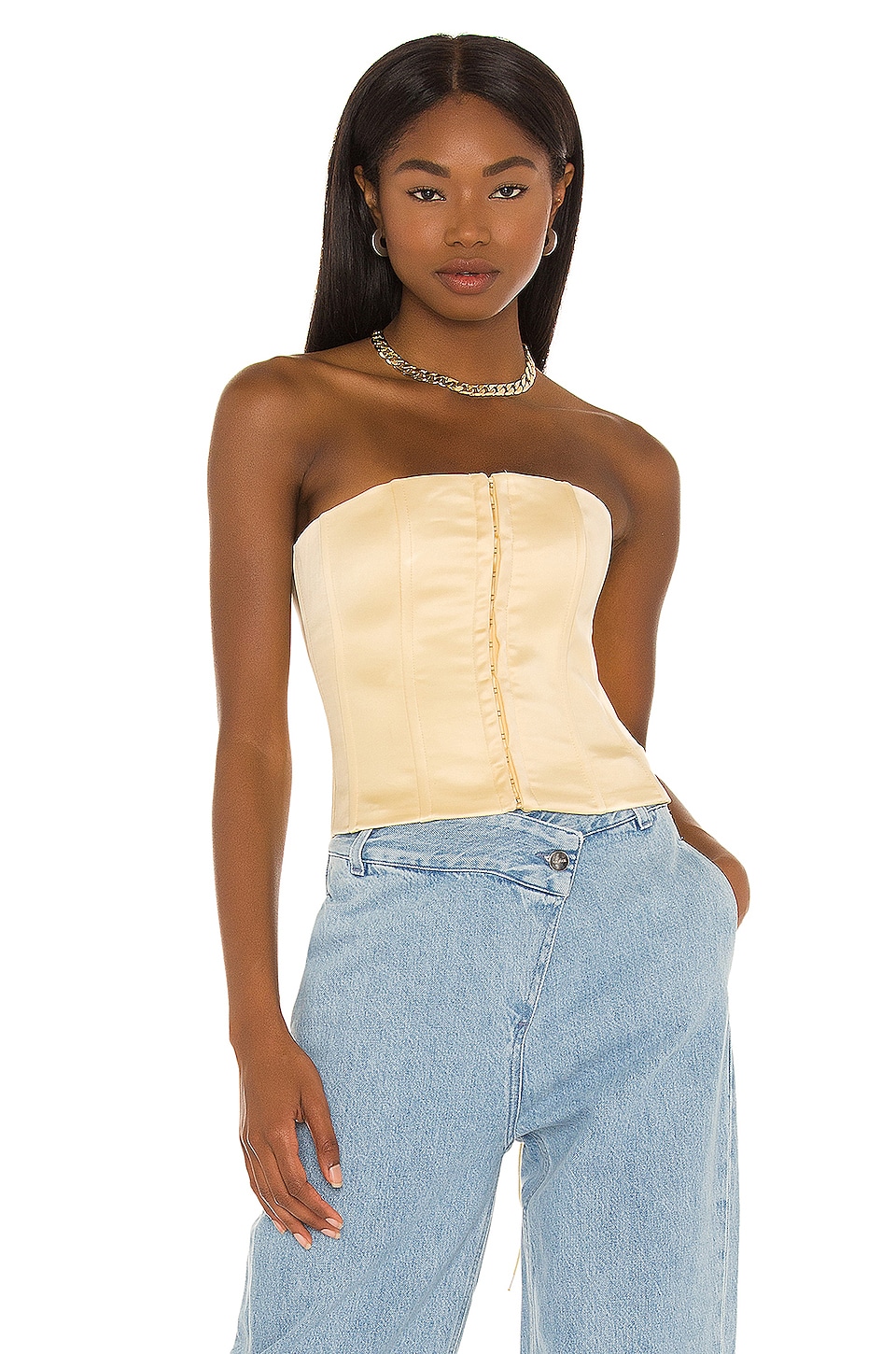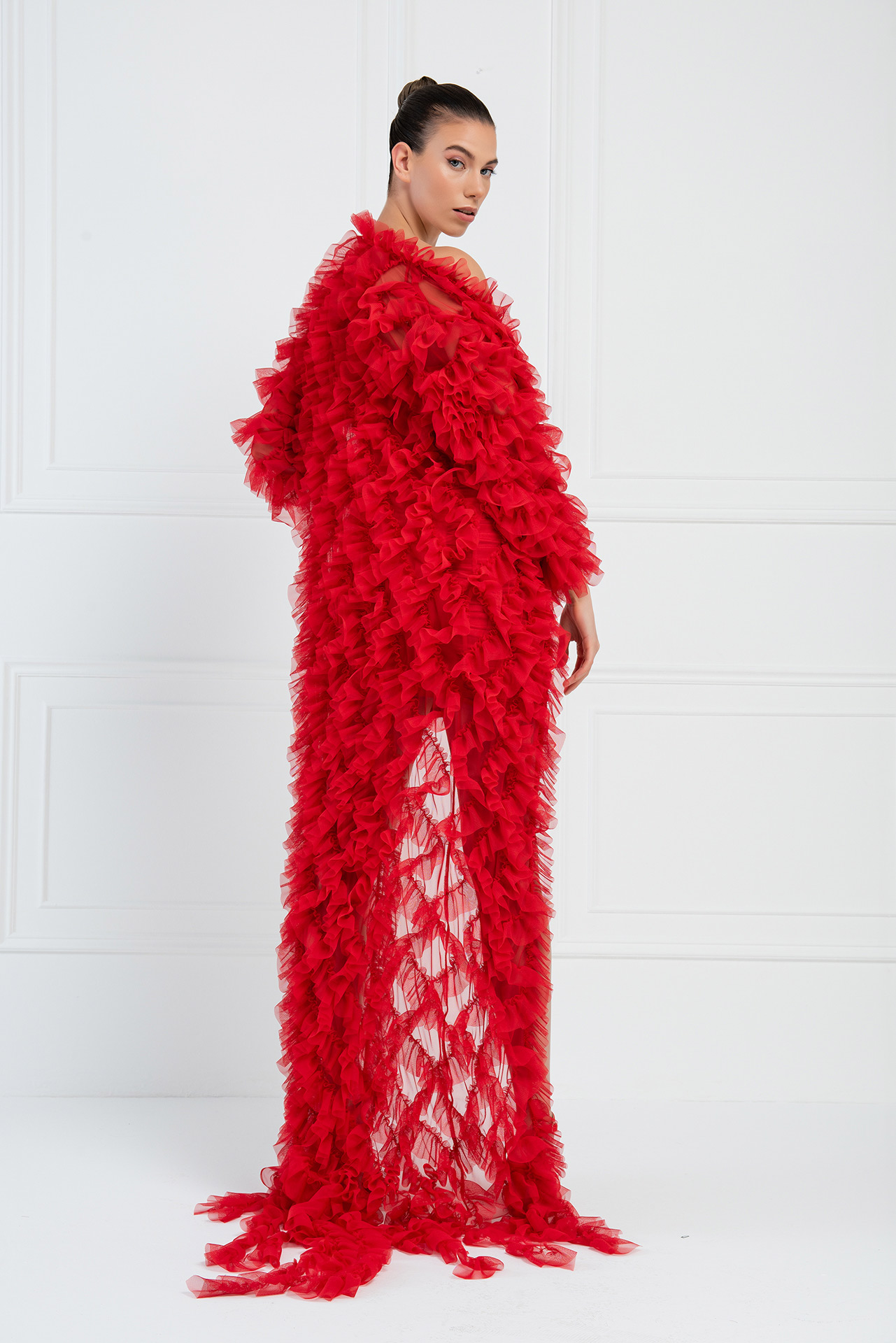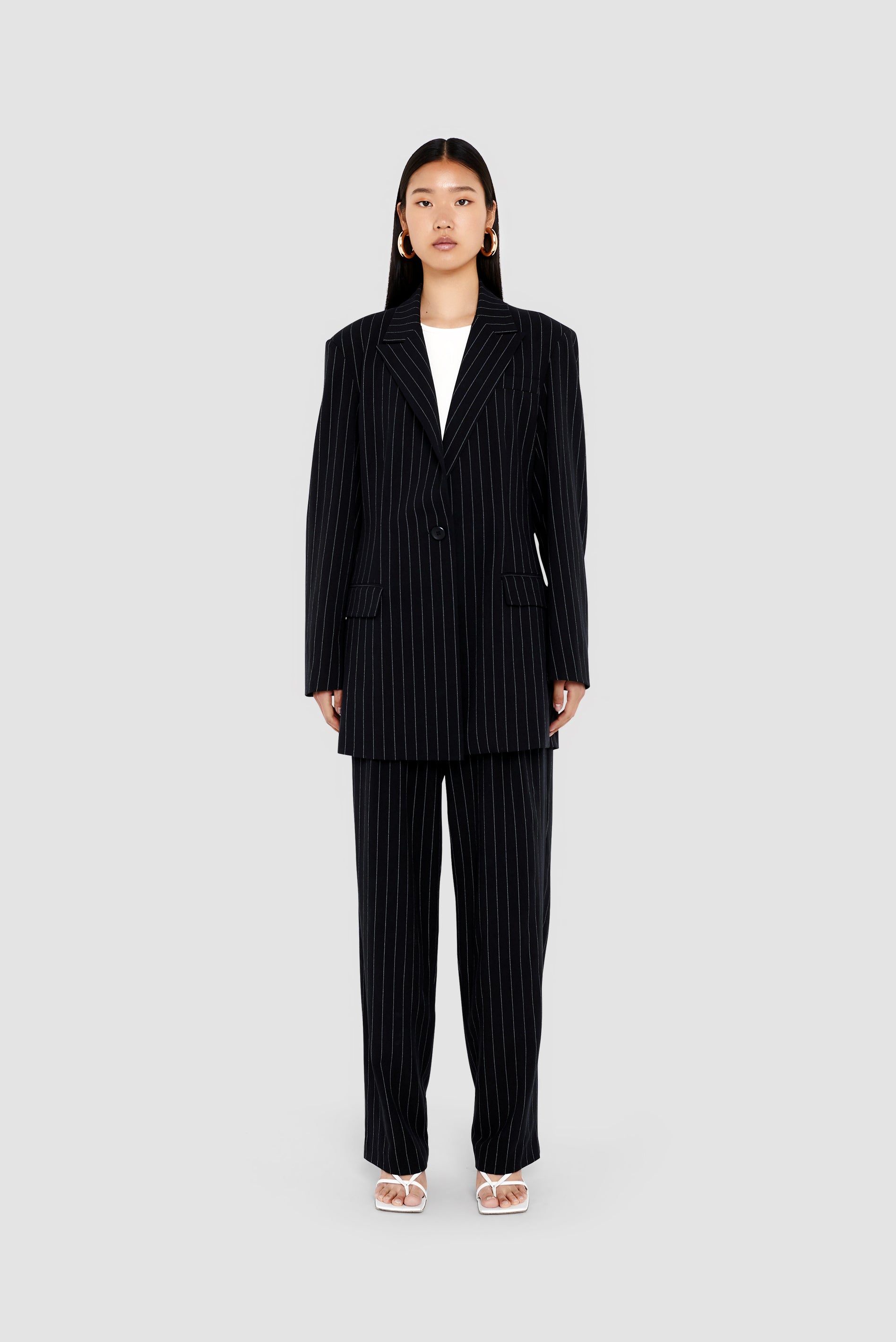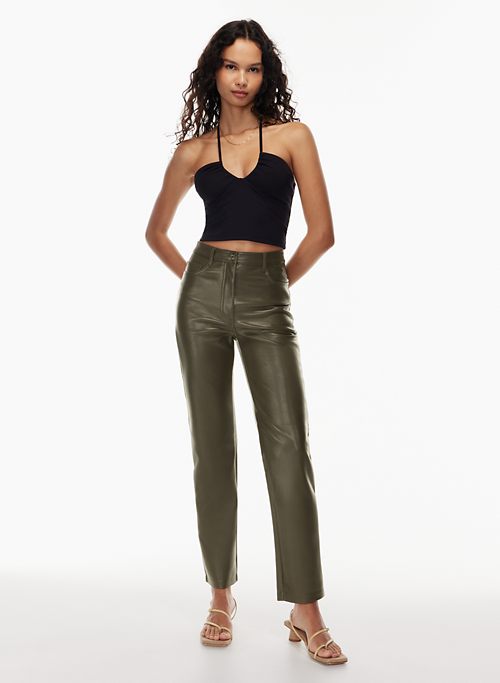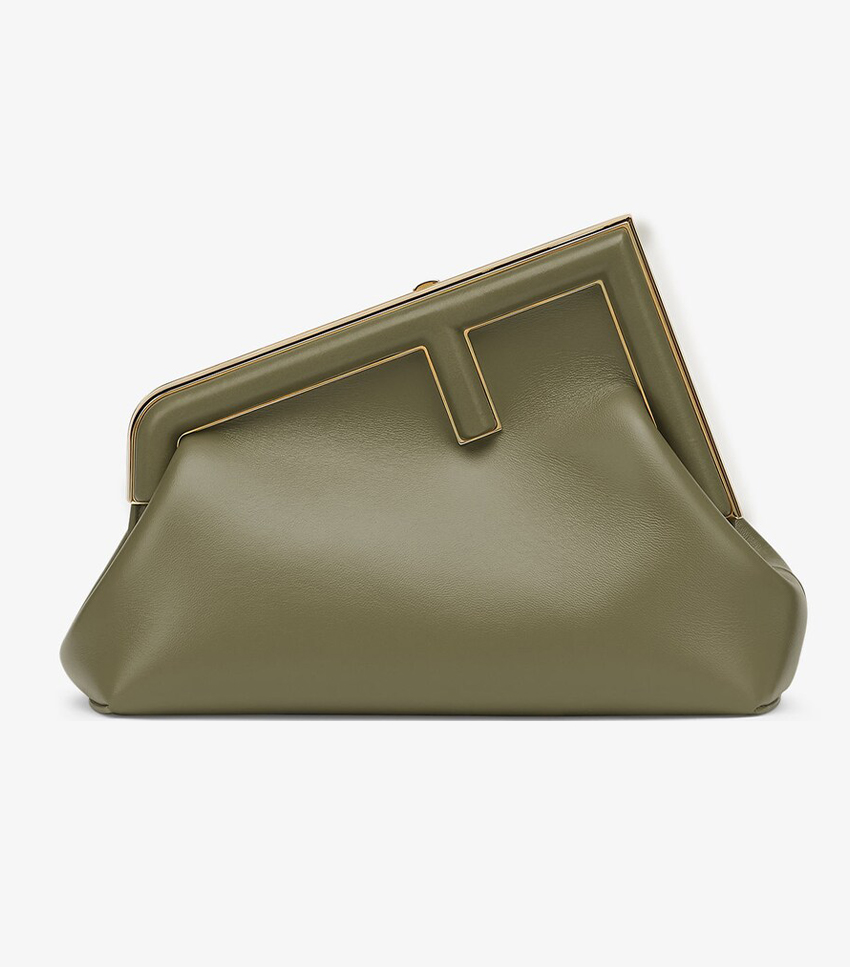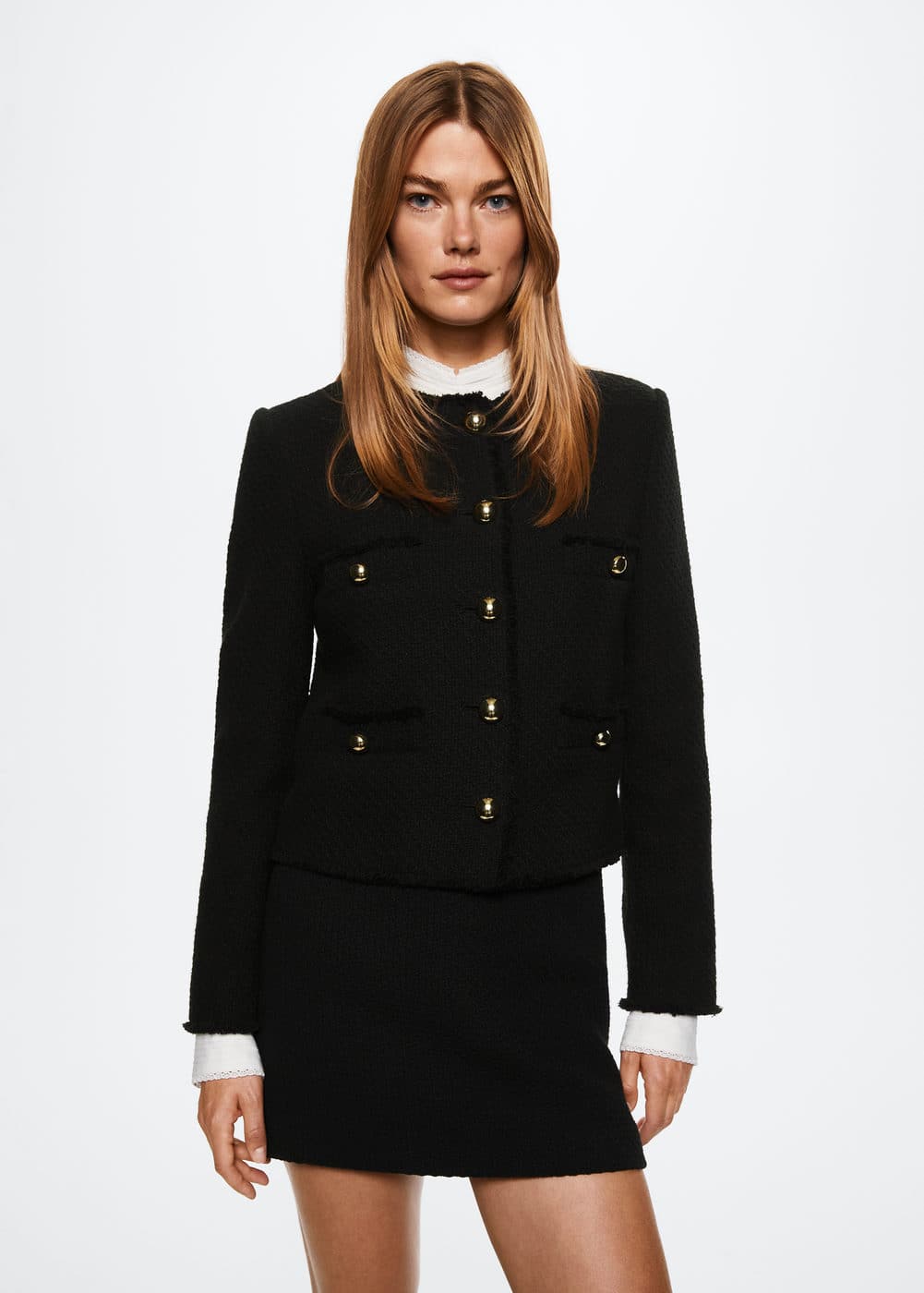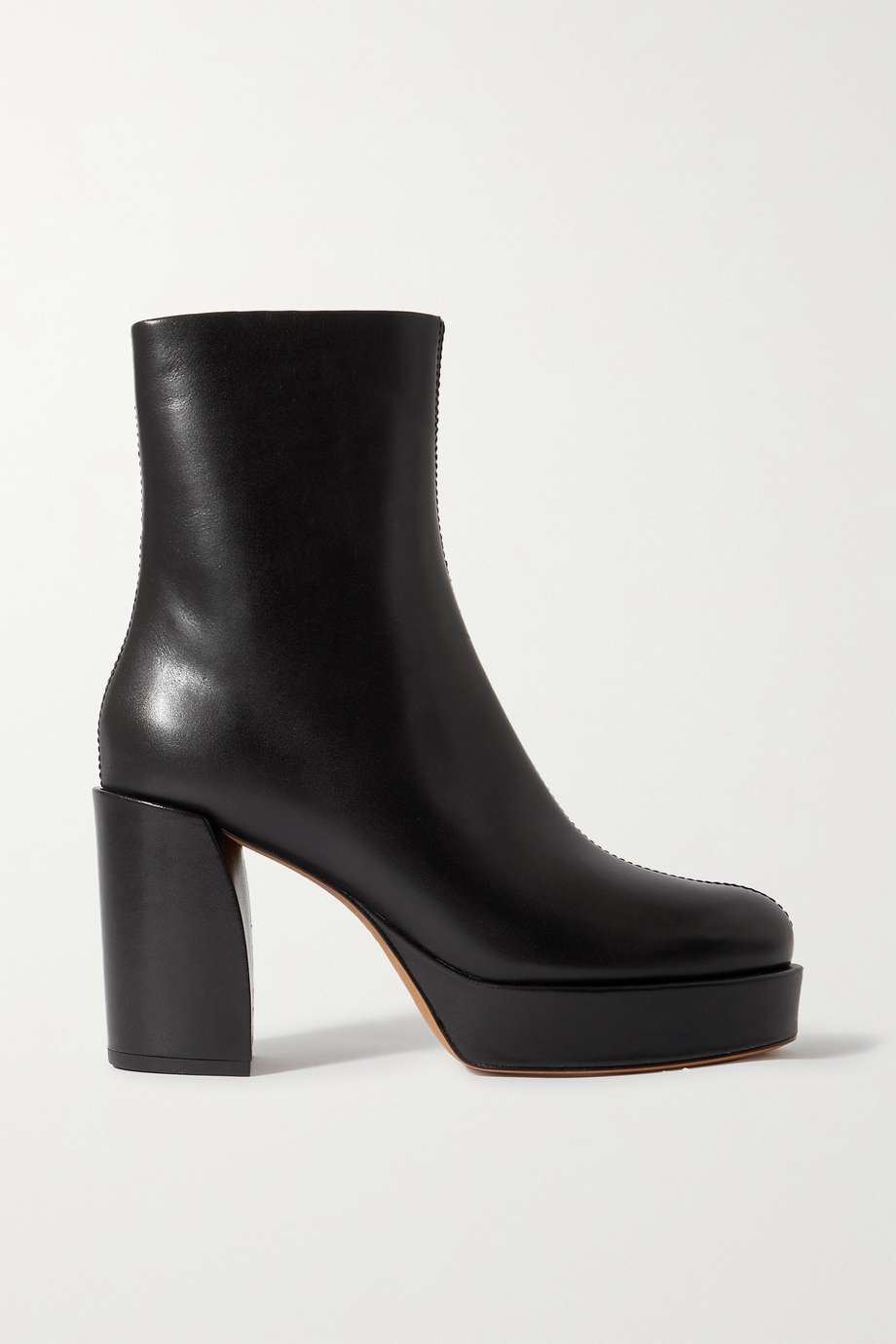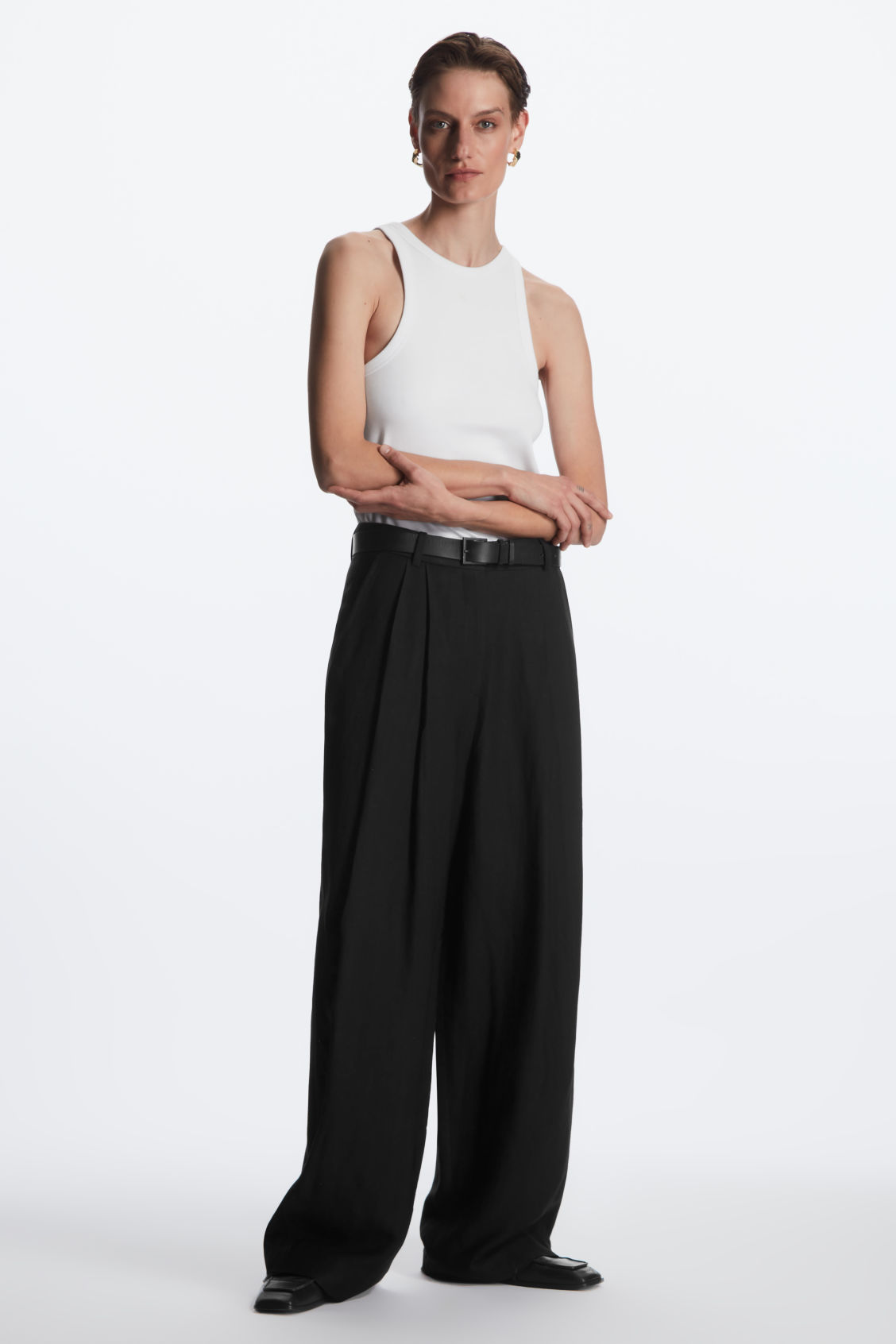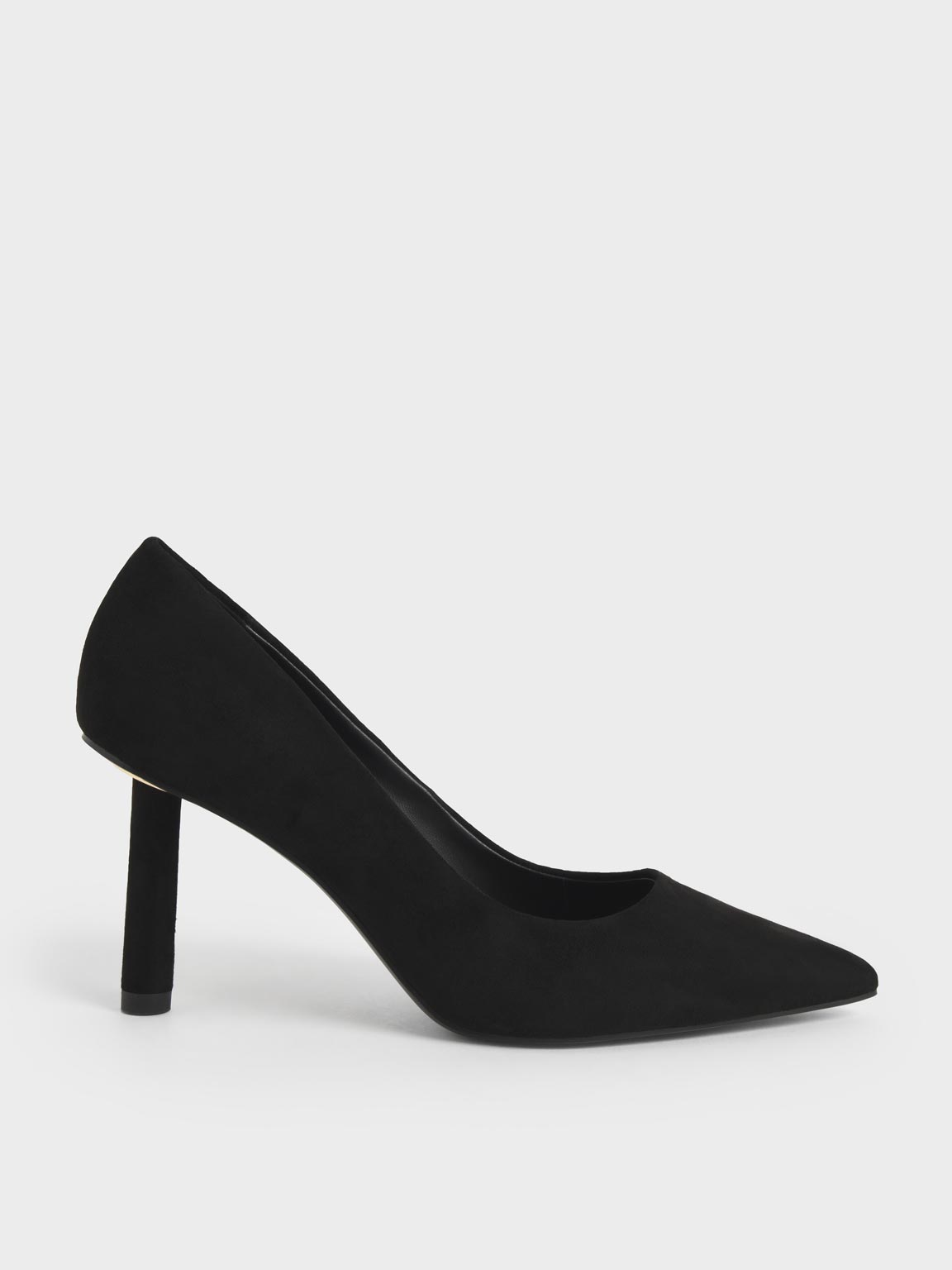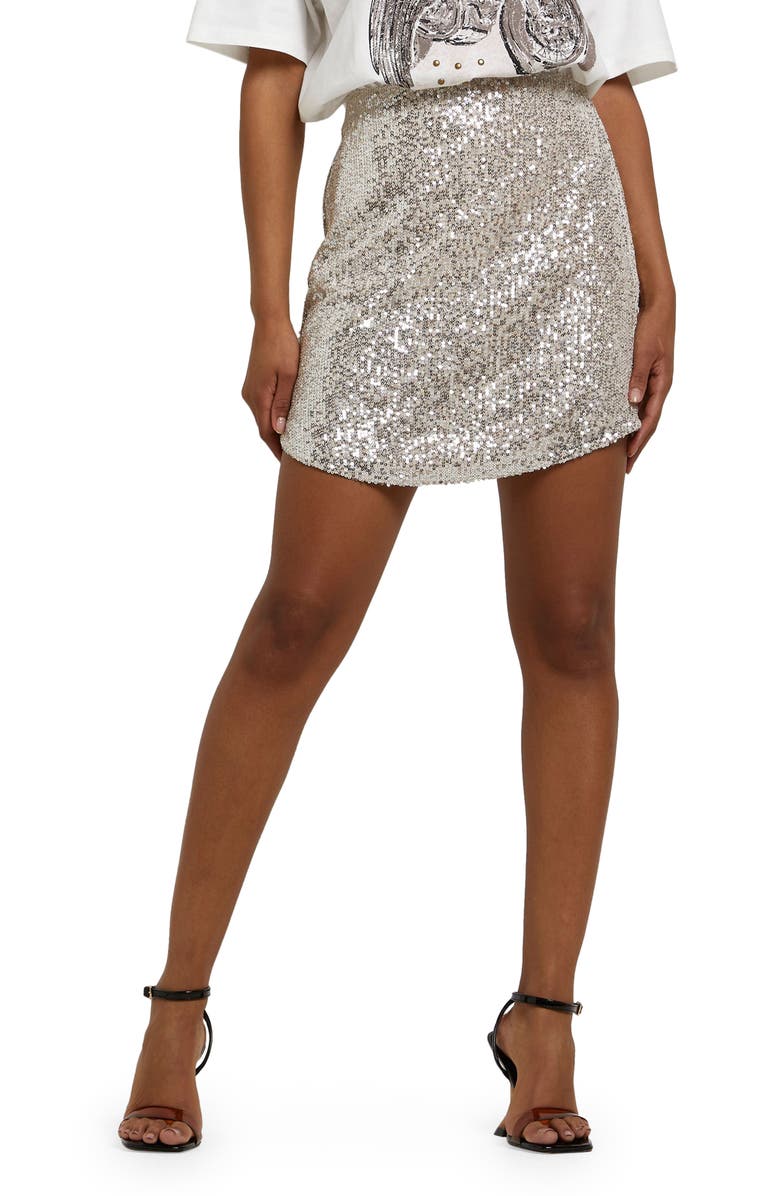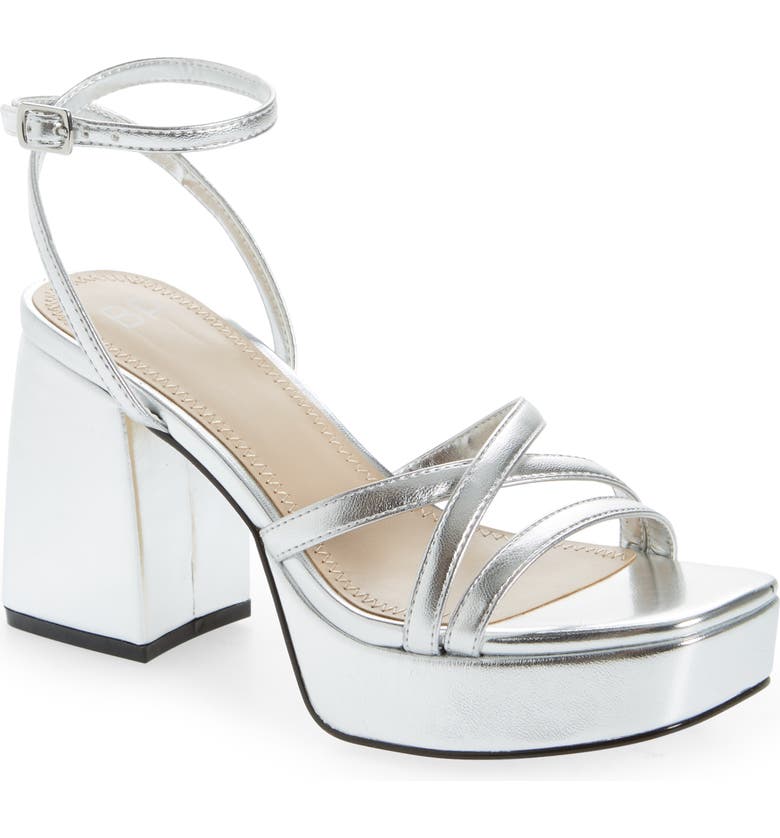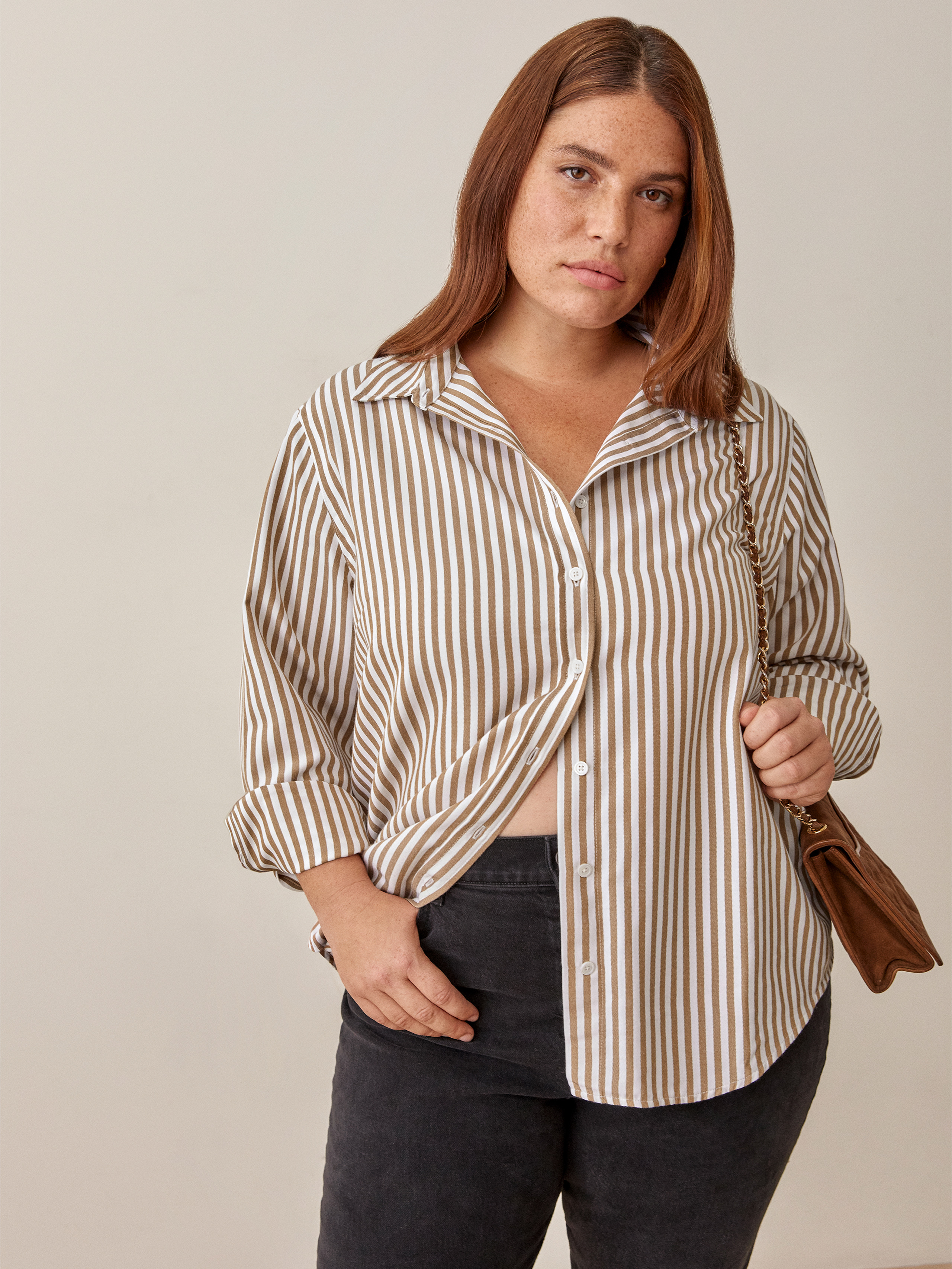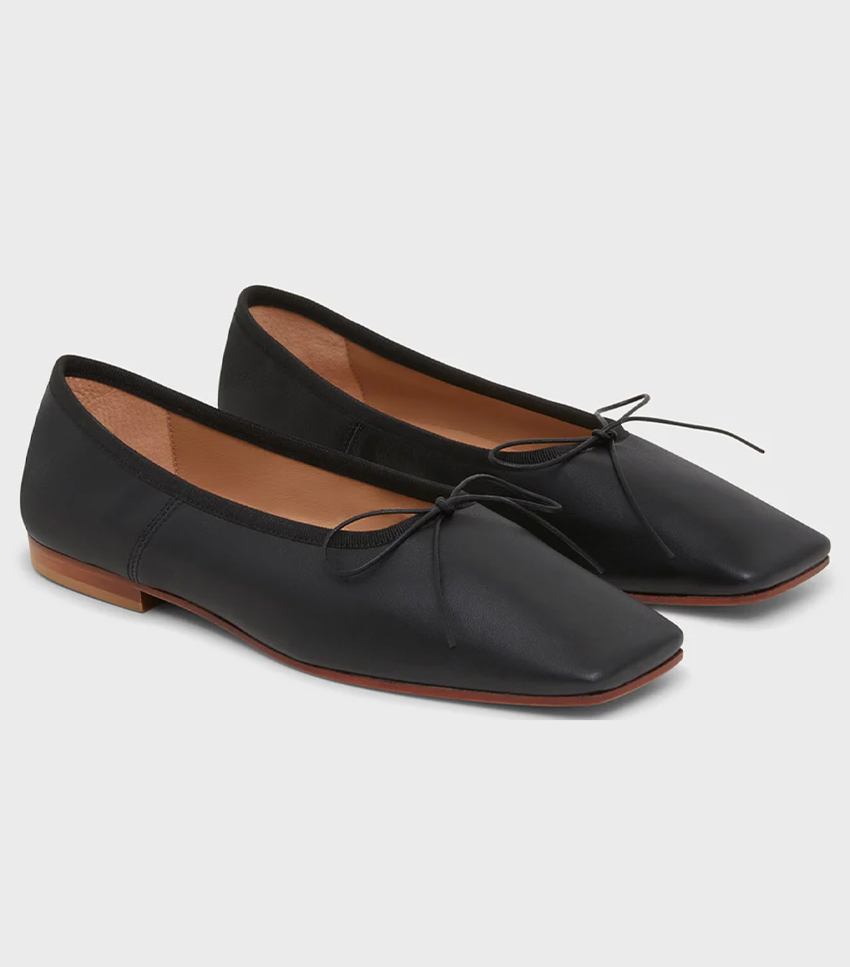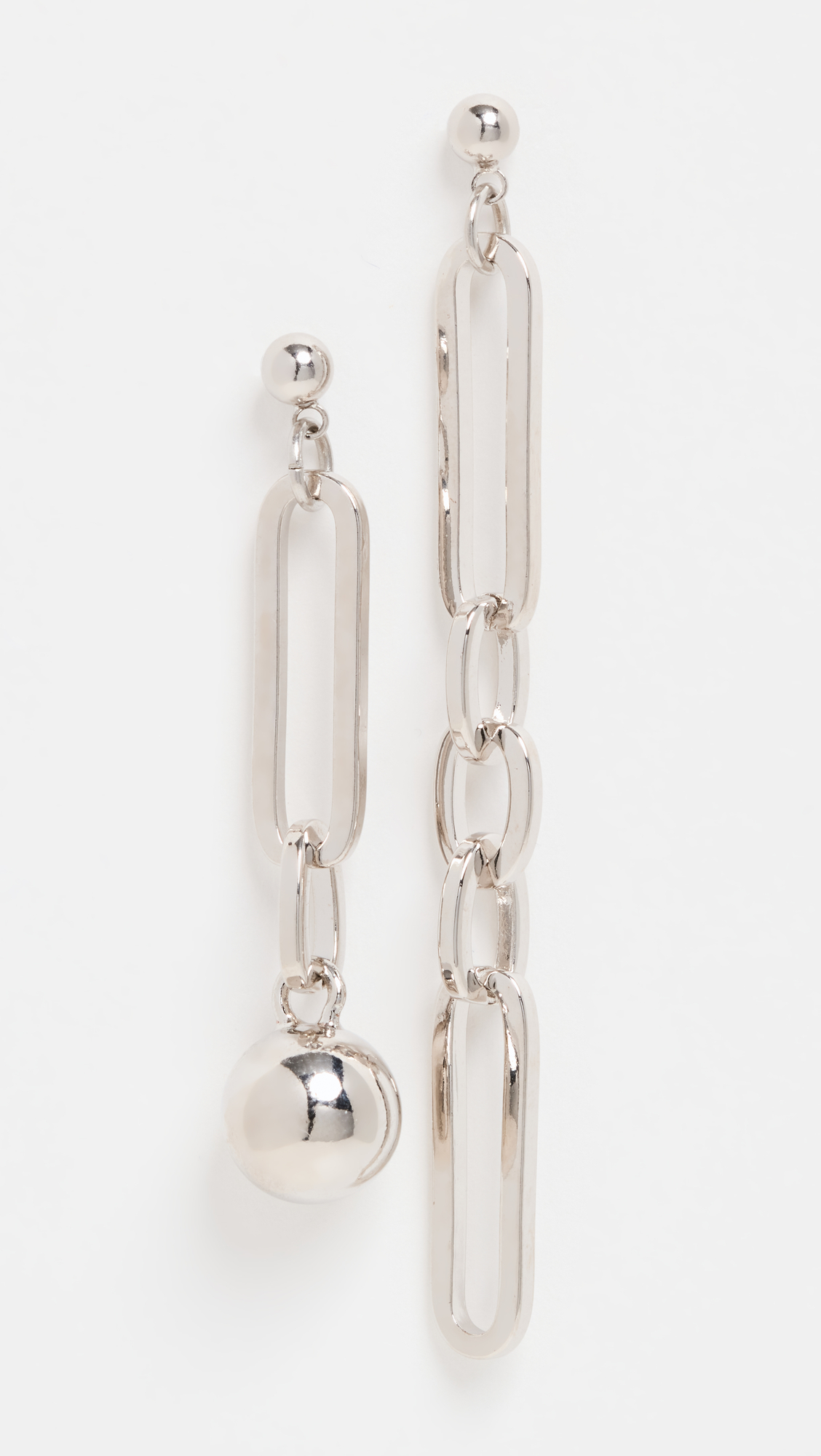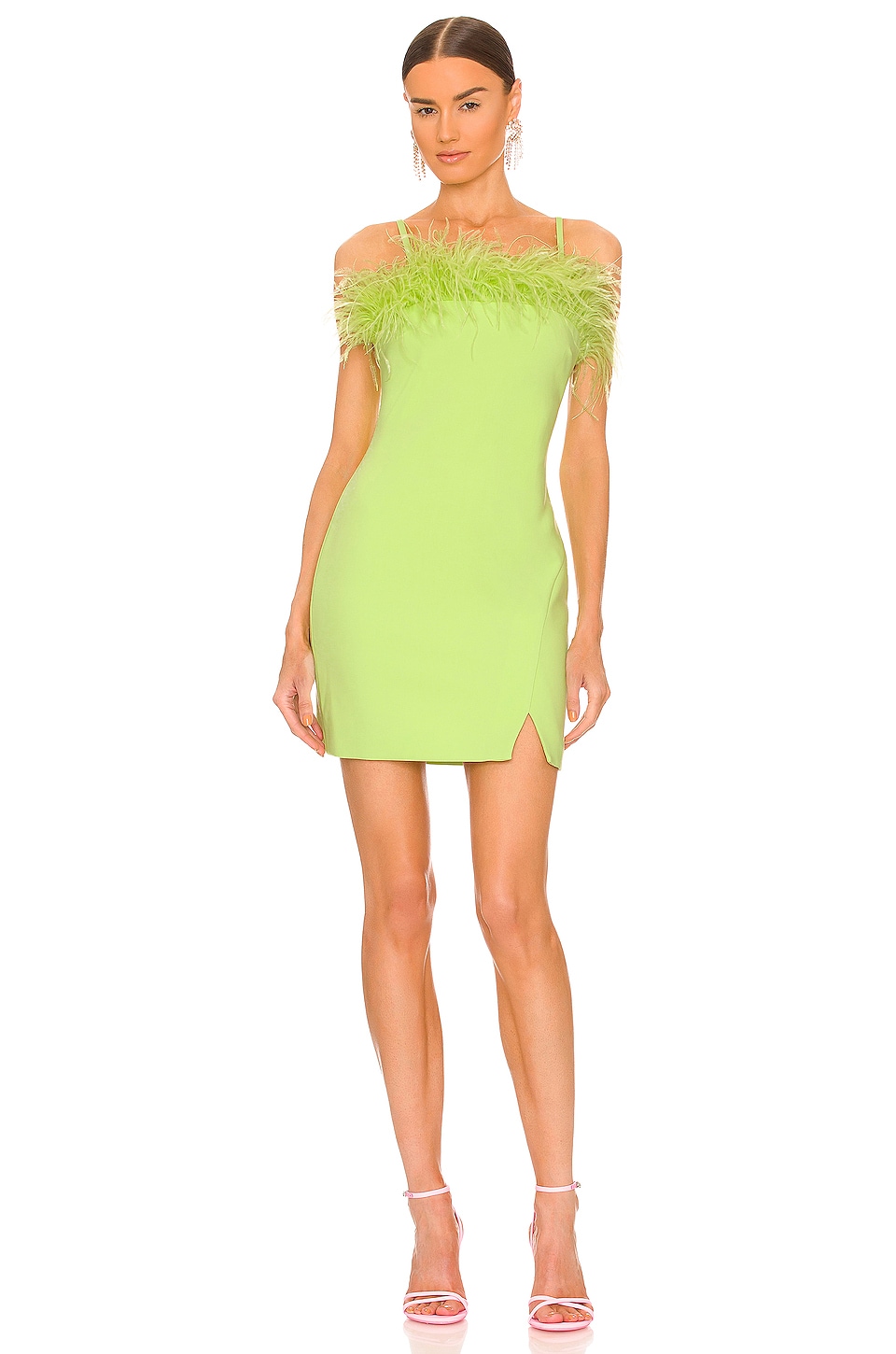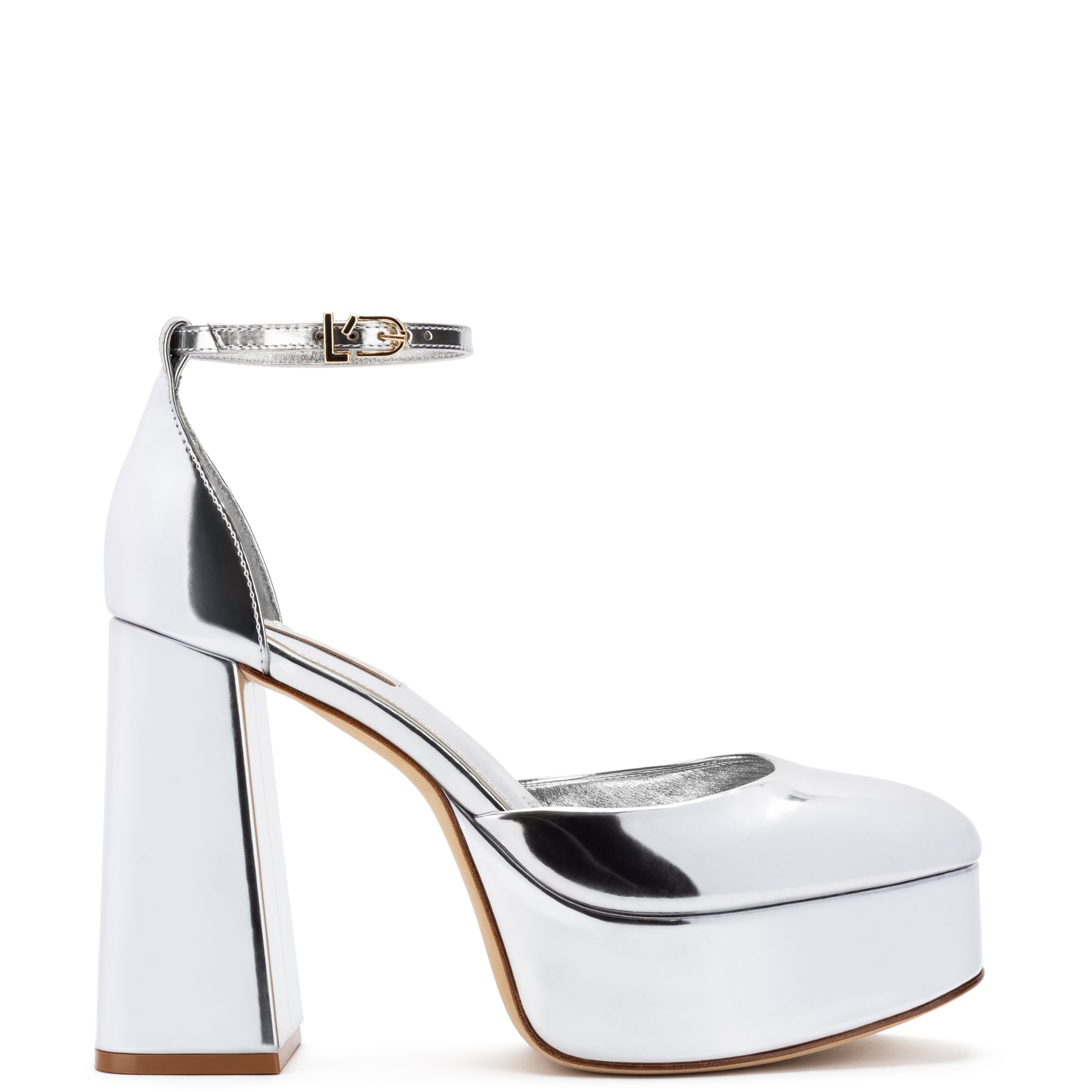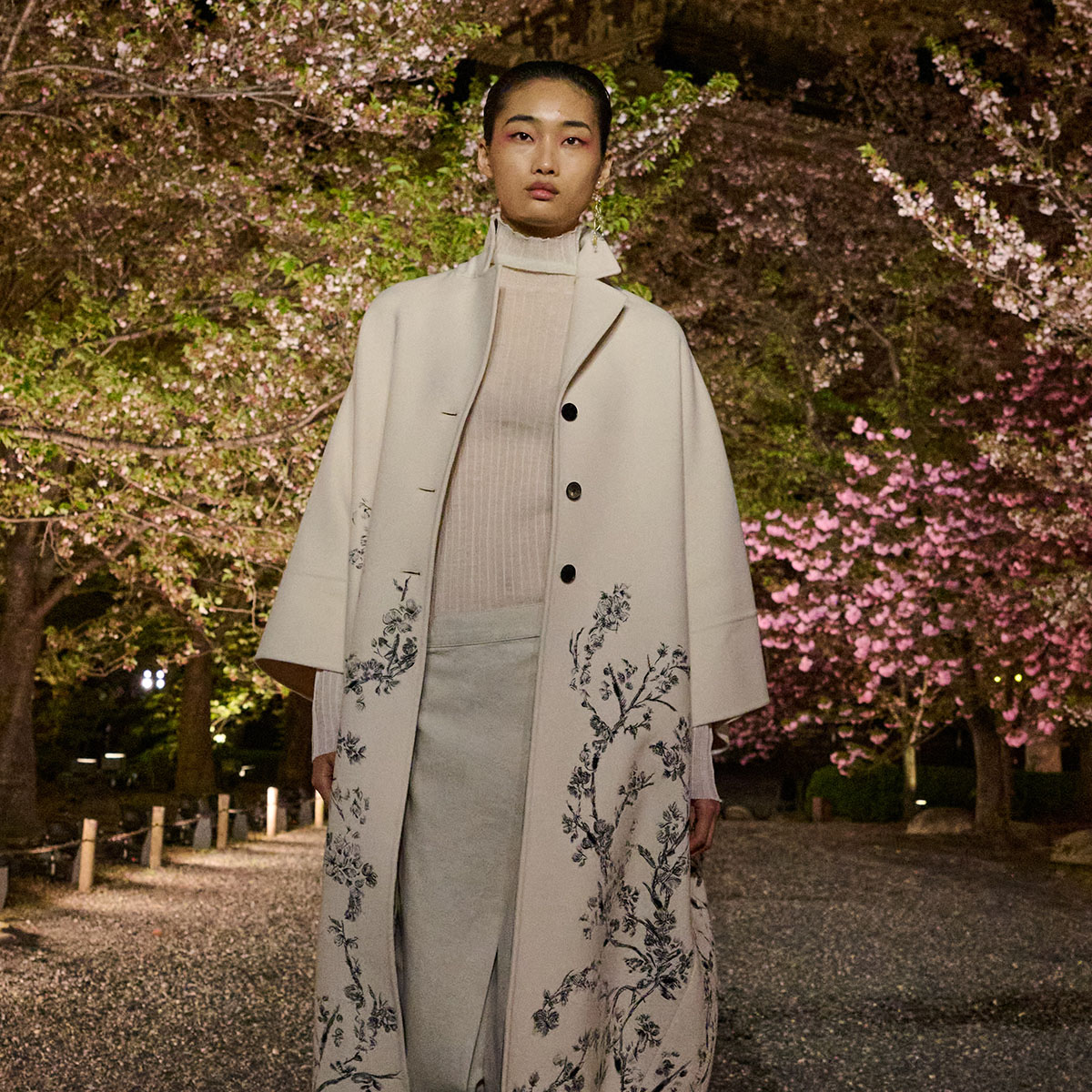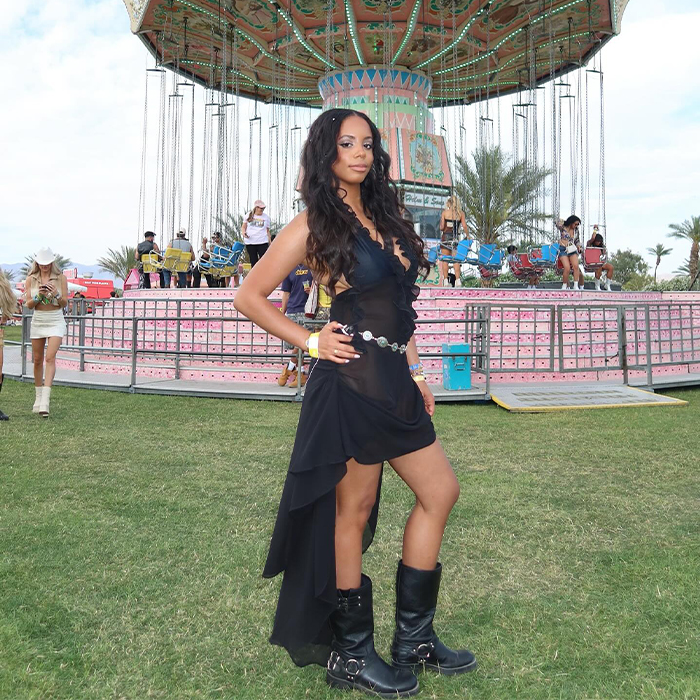I Live for Paris Couture Week—Here's How I'm Re-Creating the Best Looks for Less
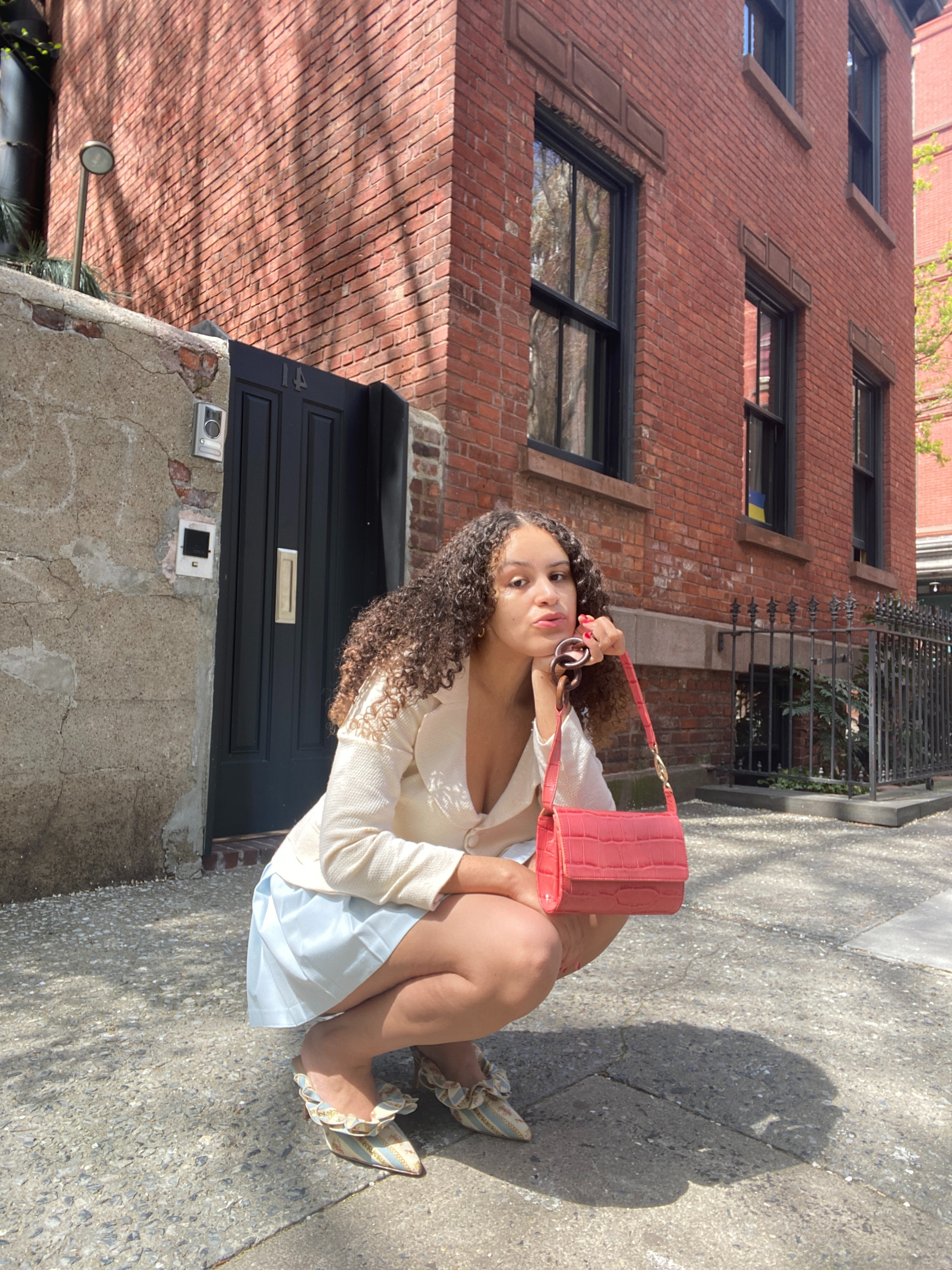
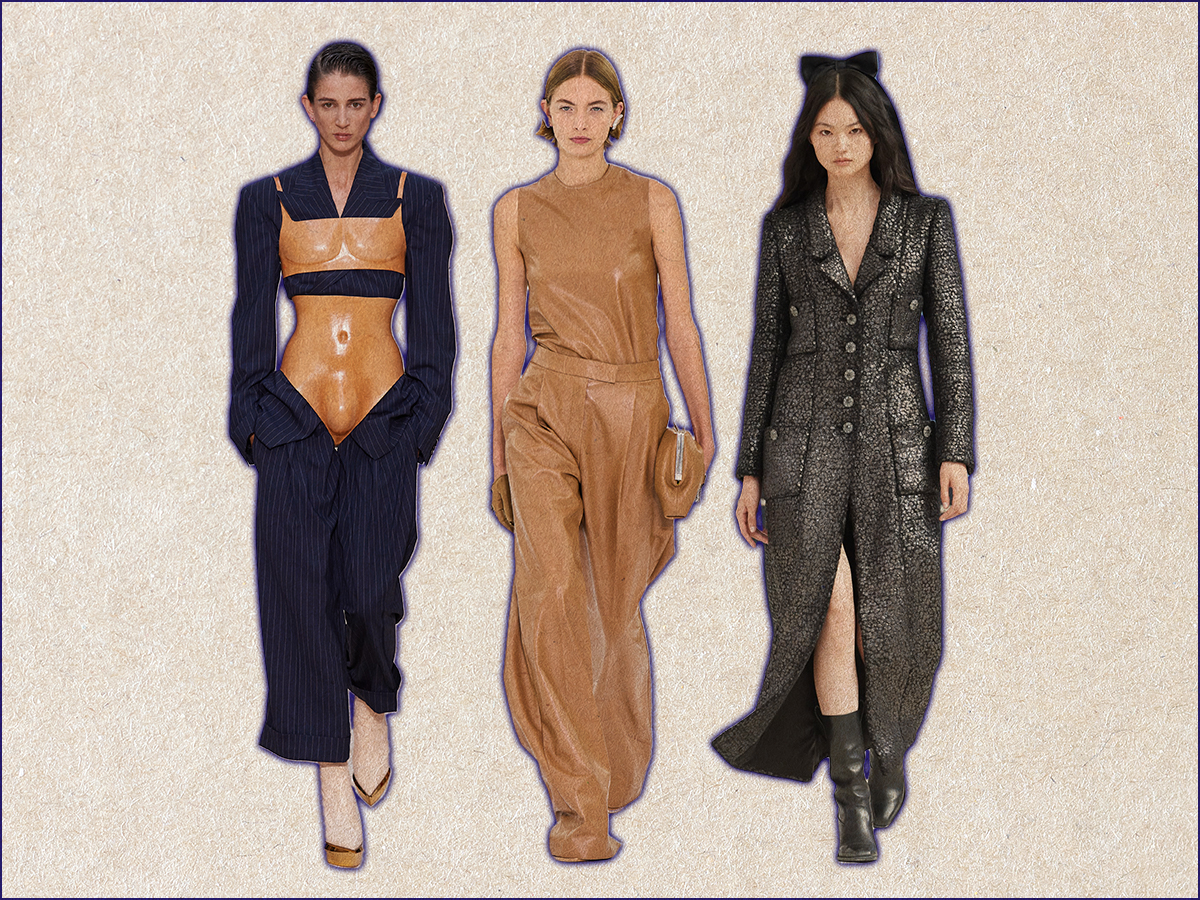
For better or for worse, fashion moves fast. The industry is constantly shifting—there's always a new label worth knowing about or a trend that's managed to take over TikTok overnight. Add to that how fashion's collection calendar has shifted from seasonal drops to fast production models that allow weekly new arrivals. All this means that keeping up with what's happening can feel like you're running a nonstop marathon (especially when your job entails keeping up with it). You can see then why the arrival of Paris Haute Couture week is a welcome break from the mad dash.
While couture shows have been over for over a week now, I've been unable to stop thinking about them—partly because I love any excuse to dress up, but also because of what makes couture so special. Unlike everyday clothing, these pieces are often handmade for months by artisans and can cost a large amount of money to produce and buy. The very nature of couture is that it's not necessarily meant to live within the realm of functionality; it's pure fashion. And while not all of us will be pulling up to a red carpet in a custom couture frock, paying attention to what's happening in ateliers can tell us what will be the next big thing. So, in that vein, I've rounded up the 9 best looks from Paris haute couture week that are bound to define the rest of the year. Plus, I've shopped them out for less because c'est la vie.
Schiaparelli, Look 23
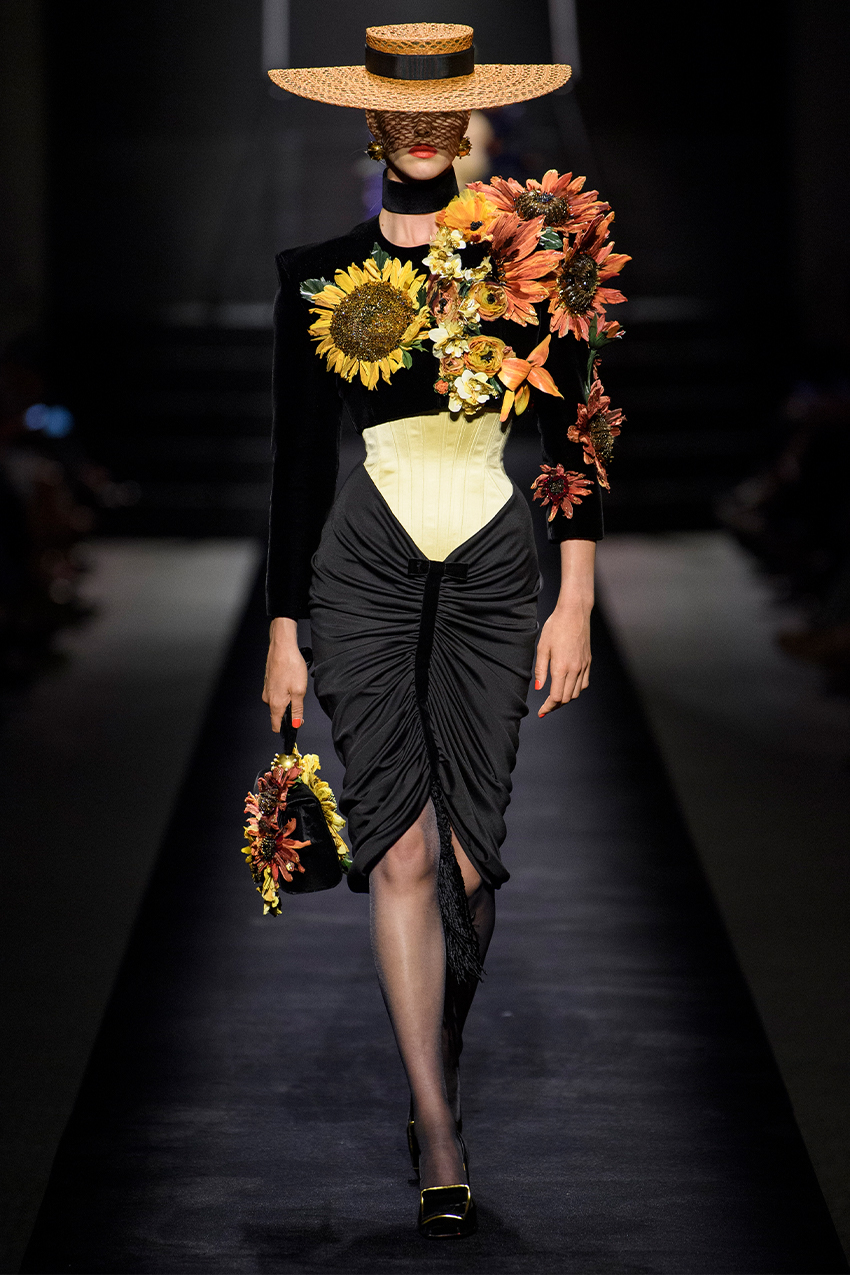
Surrealist influences have begun to resurface on recent runways, but the atelier that cemented the avant-garde movement into garments was the one-and-only Schiaparelli. Founded by the Italian designer Elsa Schiaparelli in 1927, this couture label caused a few heads to turn for its often groundbreaking gowns that were tied to major movements in the art world. Since Elsa's passing, the house has undergone its own renaissance with the appointment of artistic director Daniel Roseberry.
Schiaparelli has begun to bloom again (pun fully intended), and its recent couture collection is proof of that. With a focus on sharp '80s tailoring paired with sumptuous velvets and satins embroidered with flowers and finished off with hats from Stephen Jones, each look was a budding concoction of pure beauty. And a reminder that couture should not only reflect the world around us but inspire us to see it in a new light.
Shop the key pieces:
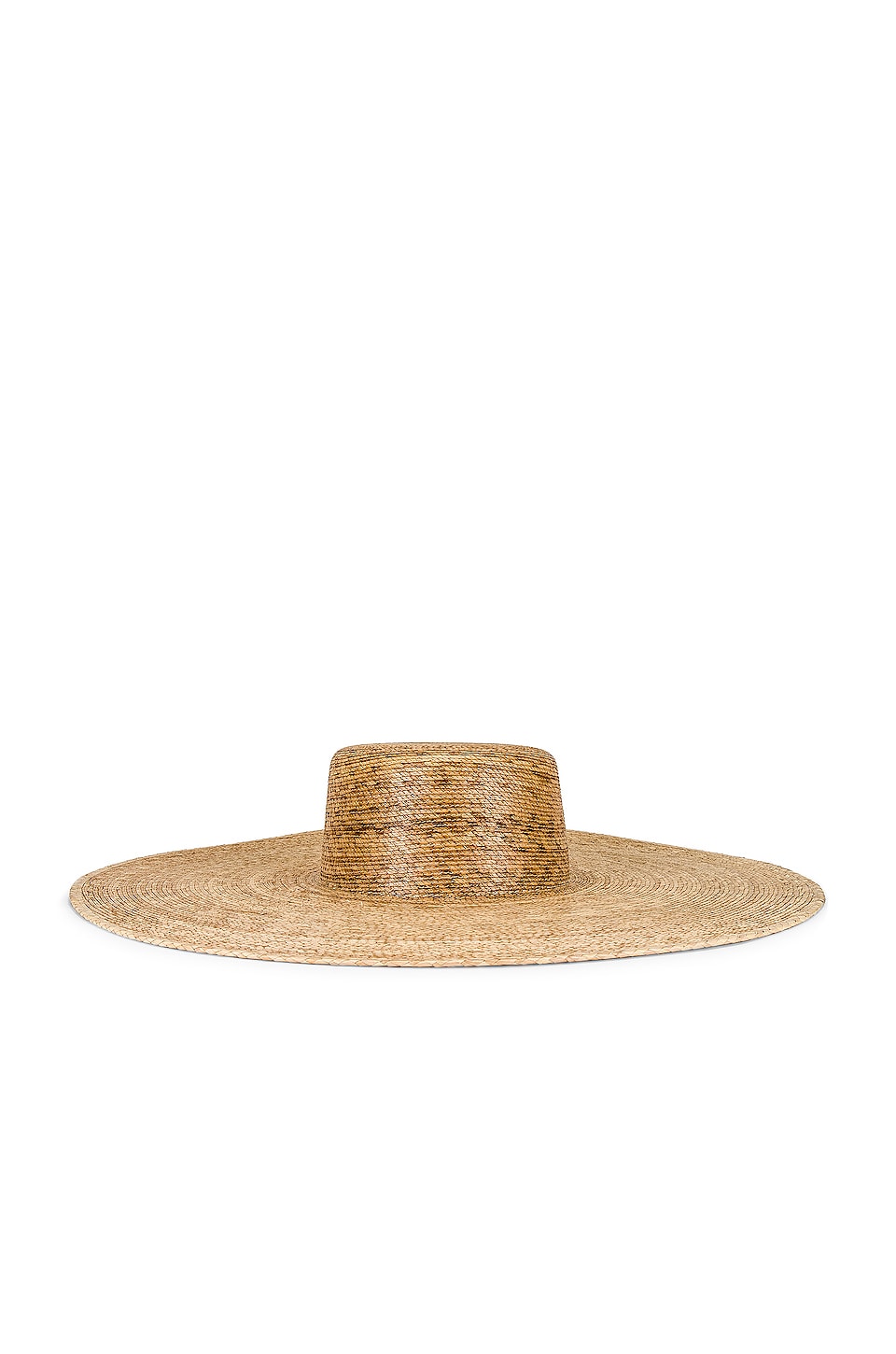
The key to re-creating any look from Schiaparelli's F/W 22 Couture show starts with a great hat.
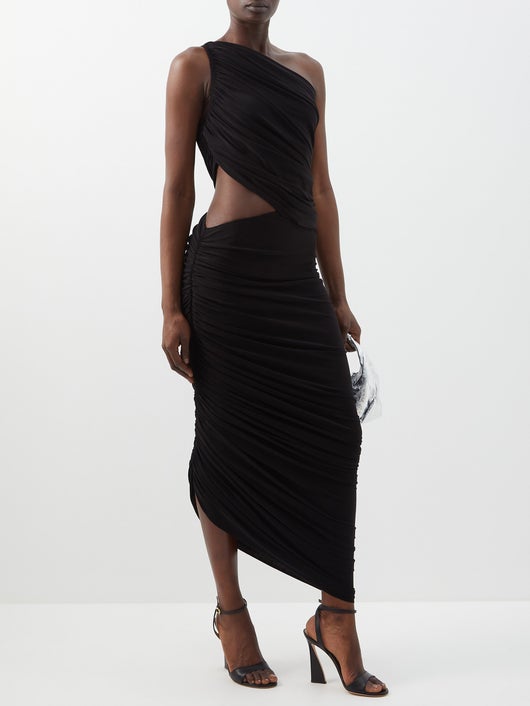
Finish off the look with a ruched skirt to get the same tailored feel.
Valentino, Look 46
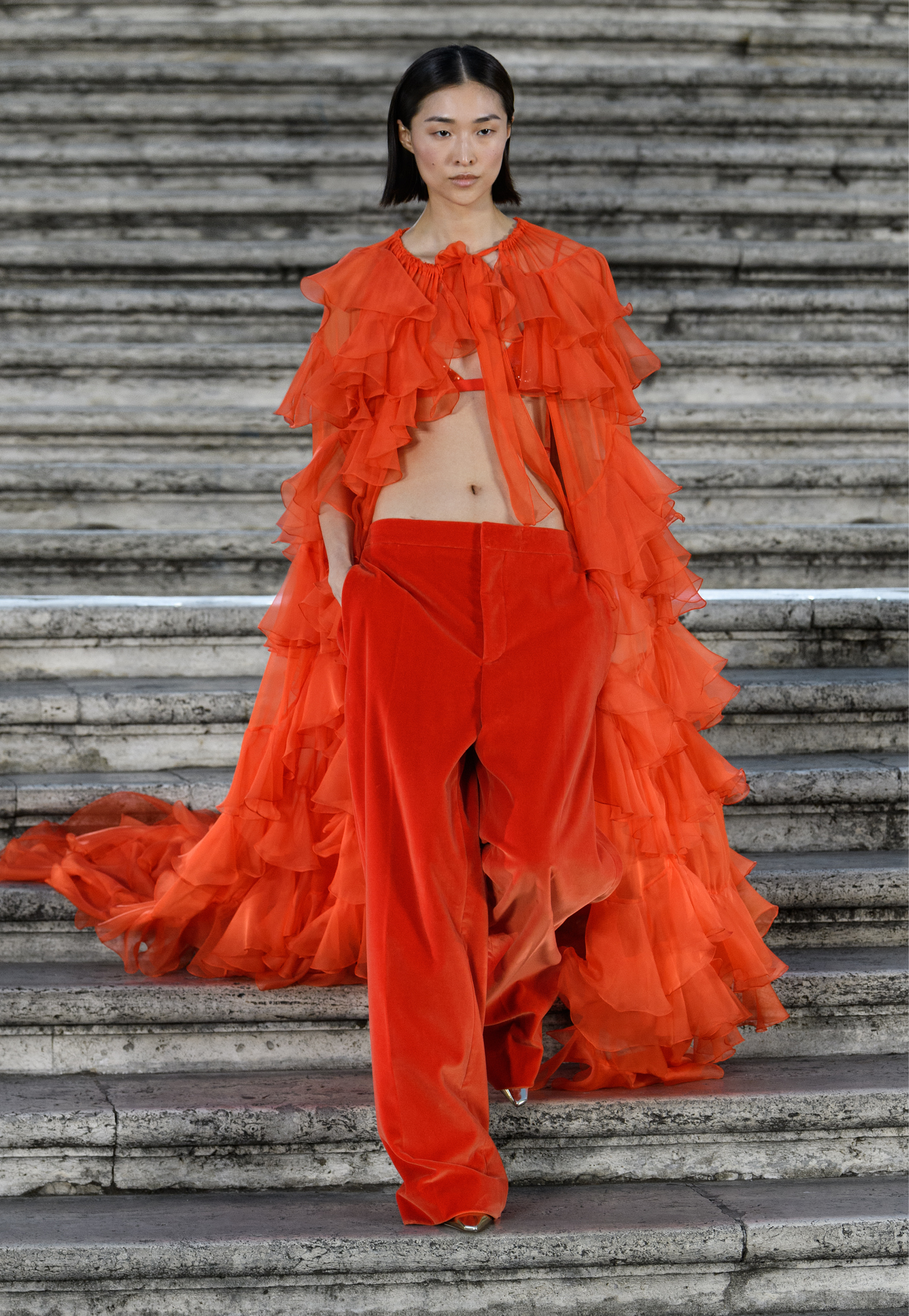
When it comes to couture houses that continue to have a hold on the culture, you can’t leave Valentino out of the conversation. While most may know the brand for its luxury handbags and ready-to-wear collections, it became the pinnacle of high fashion because of its couture collections. Founded by the late Valentino Clemente Ludovico Garavani in 1959, the designer quickly caught the attention of icons like Jacqueline Kennedy and Audrey Hepburn because of his signature gowns.
Since then, the brand has risen to even higher heights under the helm of creative director Pierpaolo Piccioli—see the F/W 2022 collection as proof. A diverse set of models made their way down Rome’s Spanish Steps in theatric frocks—aka purple feather gowns paired with leather gloves or a full-length Valentino red chiffon duster paired with low-rise matching trousers. Leaving us with a collection that will have us buzzing for years to come.
Shop the key pieces:
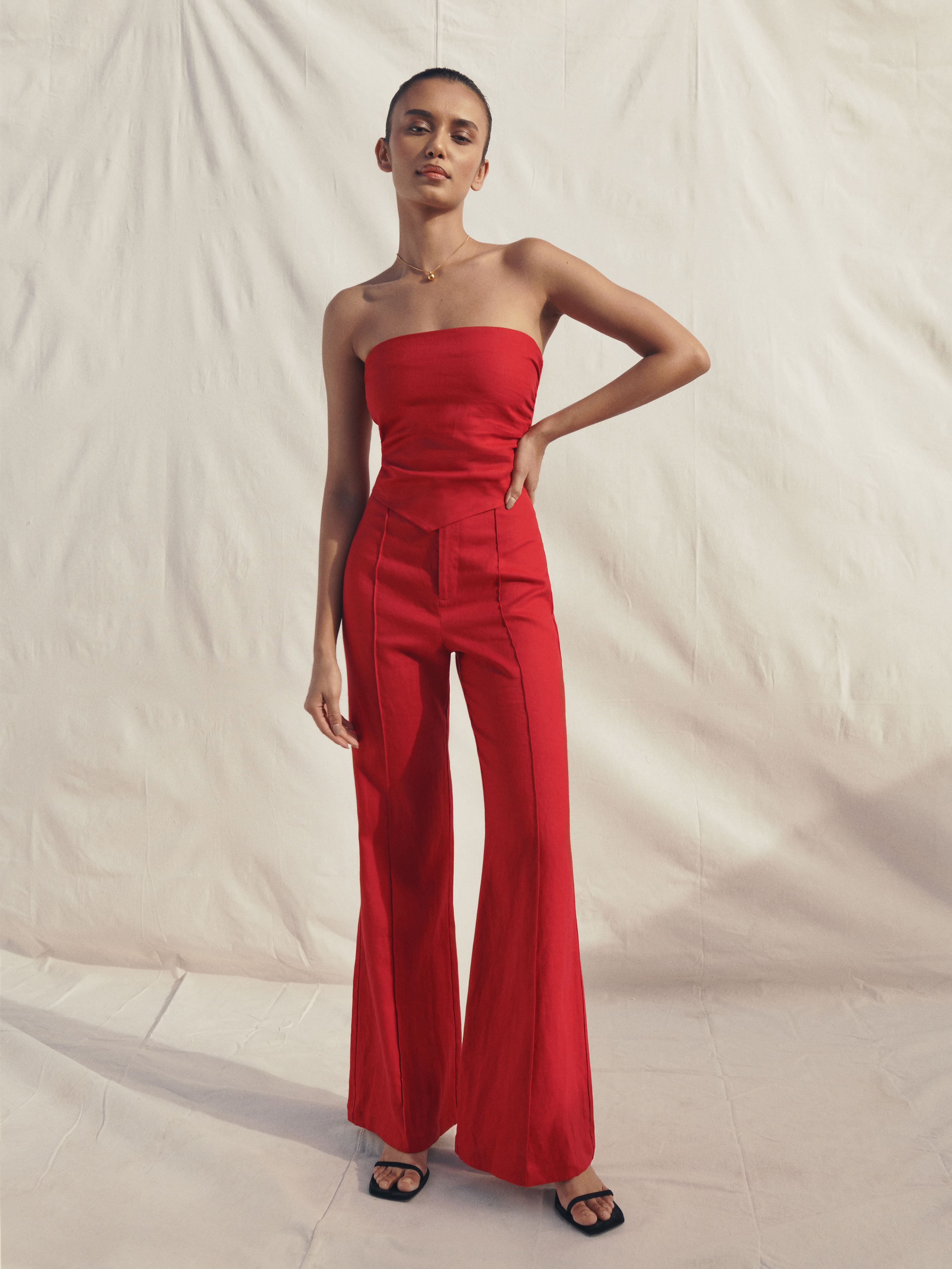
The styling genius of the Valentino show is the fact look is paired with matching trousers in the same hue.
Jean Paul Gaultier, Look 20
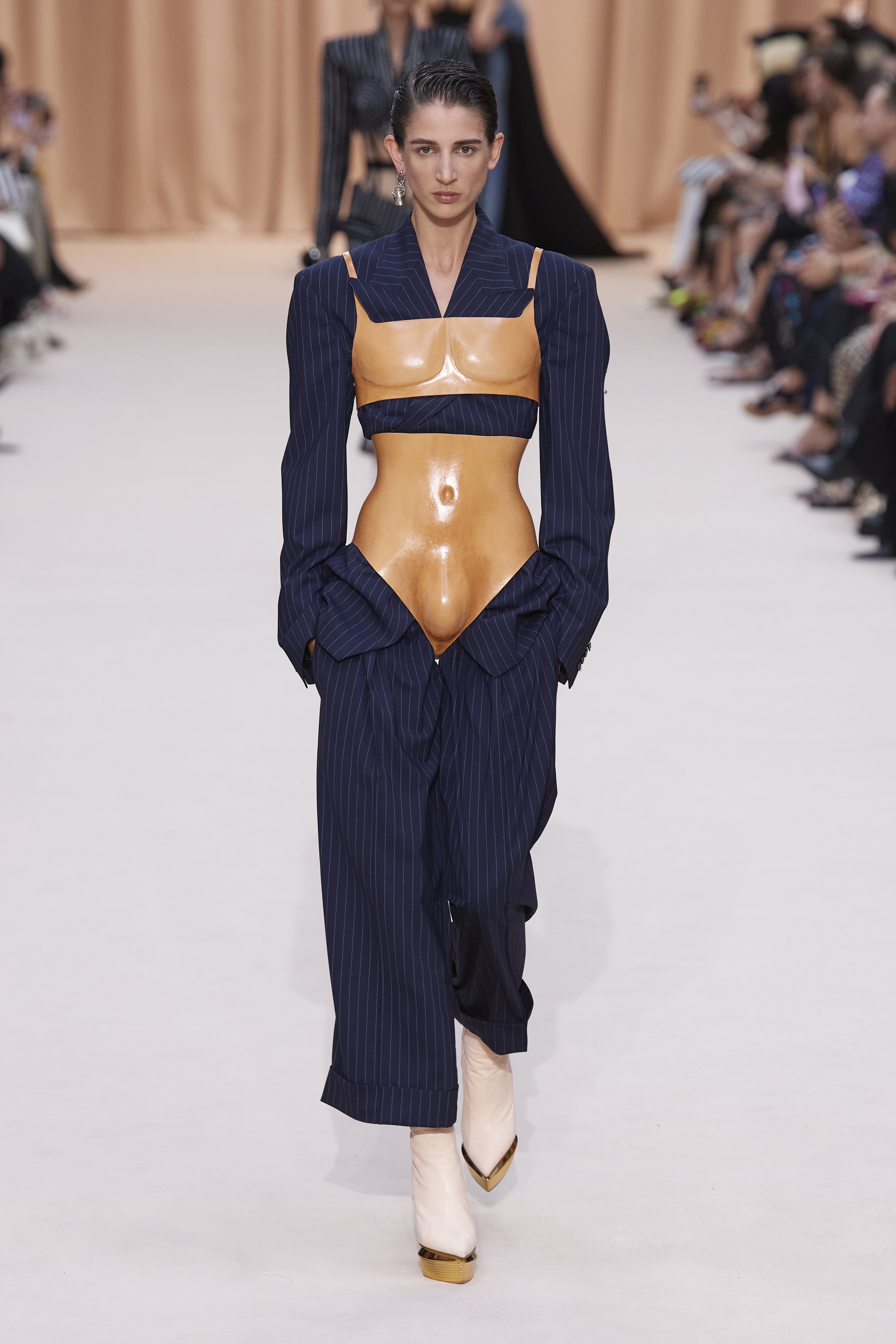
Not to sound like a broken record, but couture houses are so interwoven with broader pop culture, especially when talking about Jean Paul Gaultier. The French prêt-à-porter founded his namesake label in 1982 and became known for his unconventional gender-fluid designs that push the boundaries of how we view couture, ready-to-wear, and even beauty. He was one of the first haute couture designers to play with denim, and he designed Madonna's lingerie-inspired 1990 Blonde Ambition tour looks. Gaultier's perfume (Le Male fragrance) was a best-selling fragrance, and he even created costumes for films like The Fifth Element. Basically, Gaultier stitched himself into the lexicon in a way that no other designer has. And while he recently stepped down in 2020, he's now using his label to champion other fellow designers each season.
The most recent one is a one-off haute couture collection created by Balmain's Creative Director, Olivier Rousteing. Featuring nods to Gaultier's history as a designer (see the championing of matelot stripes or corsets throughout the collection), this show was further proof that couturiers don't follow the culture or even patterns; they create it.
Shop the key pieces:
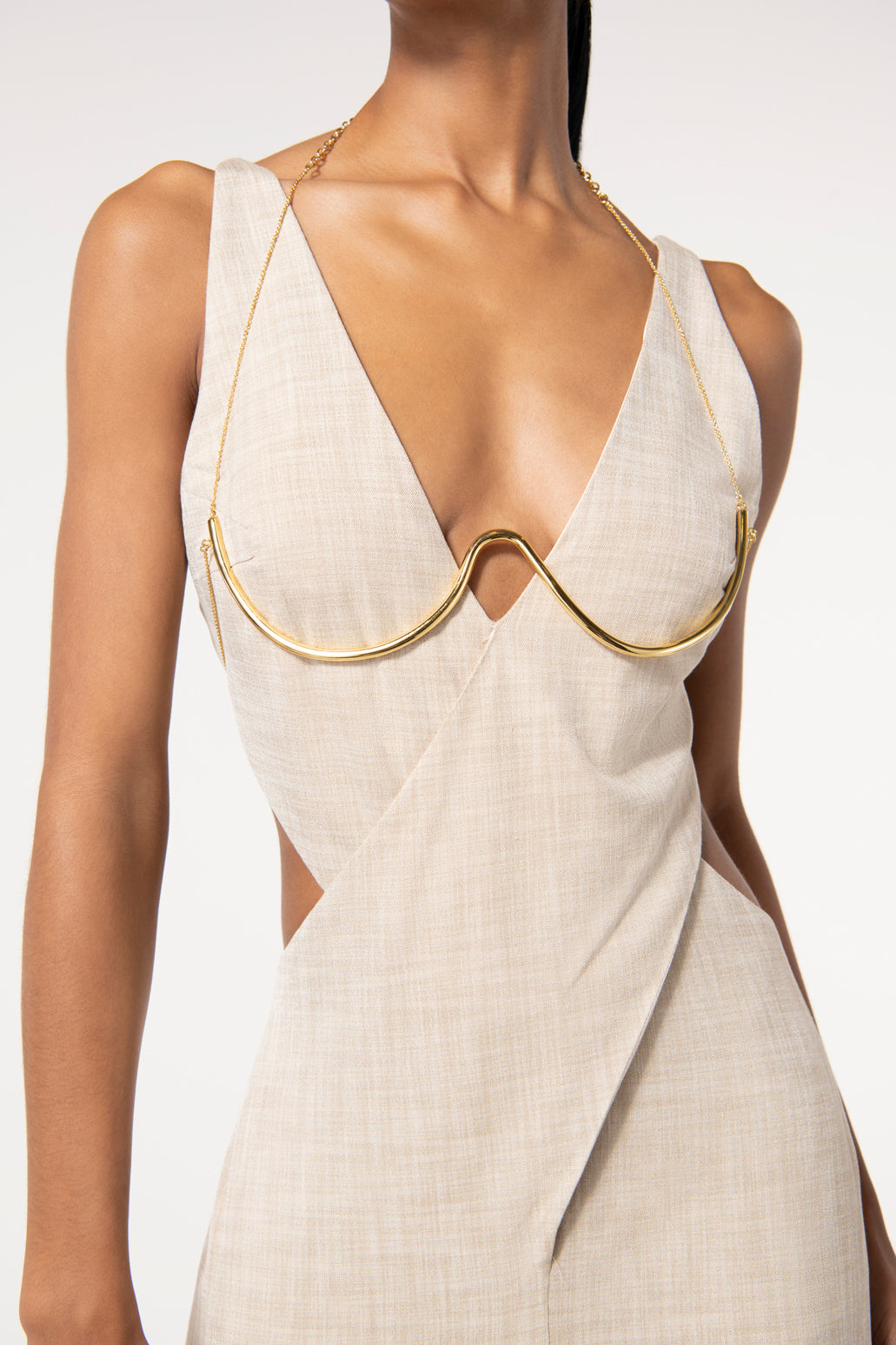
Throw this subtler body chain over a blazer, and you'll be channeling this Jean Paul Gaultier look.
Fendi, Look 4
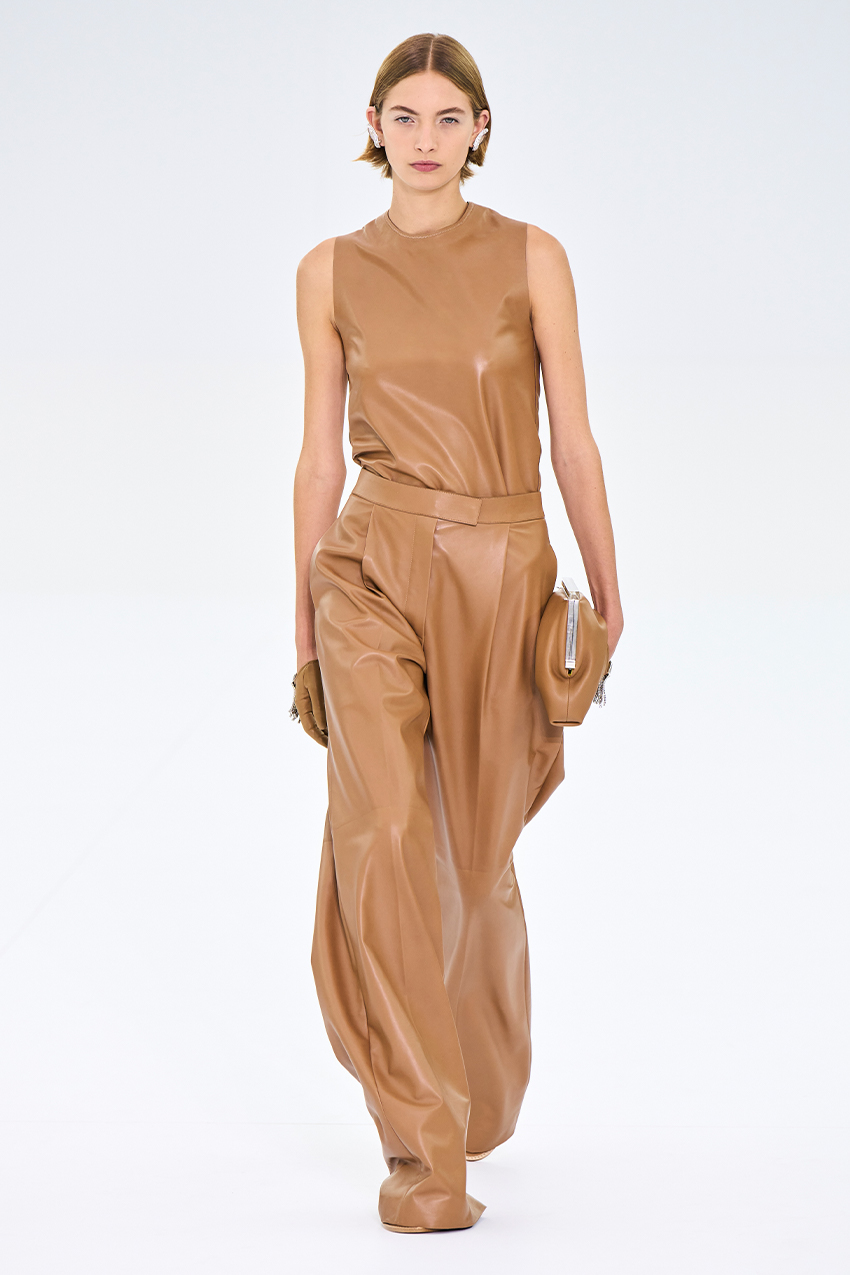
Is there a brand more synonymous with luxury than Fendi? Since its founding by Adele and Edoardo Fendi in 1925, this luxury label has influenced every aspect of the fashion industry. In part, that's due to the dynamic leaders behind the brand who have made luxury feel as if it could be an attainable part of everyday life. You can see that throughout the label's history, including when Karl Lagerfield served as the brand's artistic director and launched the brand's ready-to-wear collection. Or when Silvia Venturini Fendi, the creative director of accessories and only family member still at the helm of the label, created the baguette bag.
But more recently, you can see that through the artistic director Kim Jones's recent couture collection. Of course, the elements make this collection luxurious—like using wools like Vicuna to create the suits or full-length beaded gowns. But if you look closely, you can see through the focus on classic silhouettes (like suiting and T-shirt–inspired tops), Fendi makes high-fashion feel functional.
Shop the key pieces:
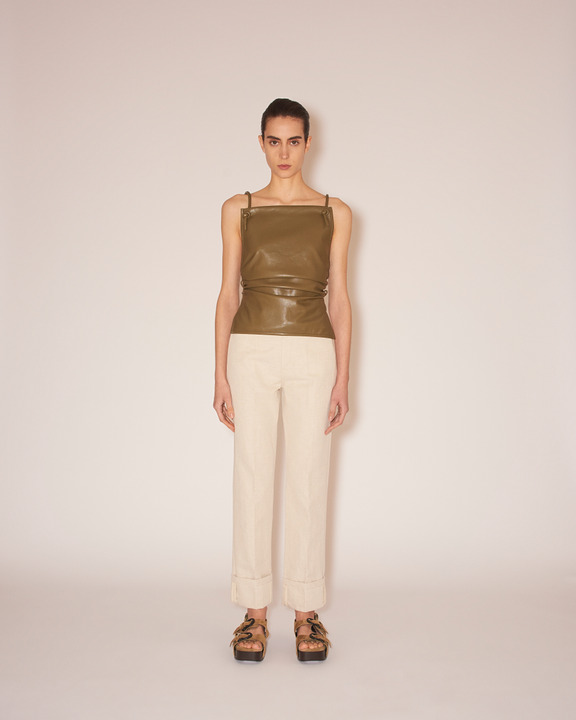
You don't have to opt for the exact same camel hue to re-create this all-leather look from Fendi; simply invest in great separates you can wear all together.
Chanel, Look 3
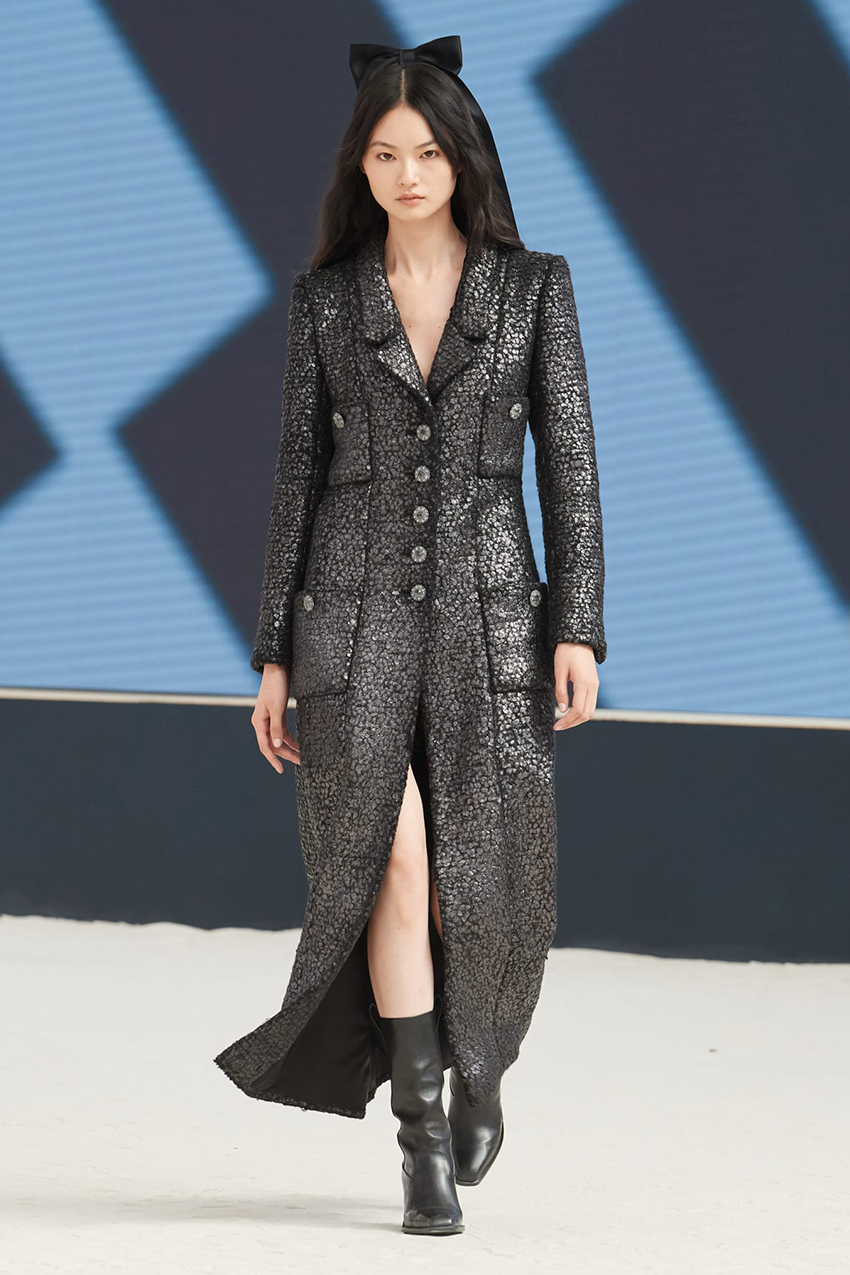
There's a common misconception that for couture to be couture, it must not be utilitarian, but like always, Chanel challenges that narrative. The eponymous label was founded by couturière Gabrielle Coco Chanel in 1910 and changed how we view and define modern fashion. Chanel was groundbreaking not just because she was a woman running her luxury label in a time where that was uncommon, but because her work changed the very nature of how women dress. Using luxurious fabrics (like tweed, jersey, and boulcé) in functional silhouettes was unheard of. And this legacy was further pushed by the late Karl Largerfeld, who served as the house's creative director for over 36 years and has since been taken up by his right-hand successor, Virginie Viard.
While critics online may have asked, "Is this couture?" upon further inspection, you can see how Viard pays homage to the nonchalant nature of Coco's original collections. She not only pulled inspiration from the archives (evident in '30s-inspired hemlines), but she also took timeless silhouettes and loosened them up for comfort. The result is a collection that reminds us that true luxury isn't necessarily splashy; it's found in the details.
Shop the key pieces:
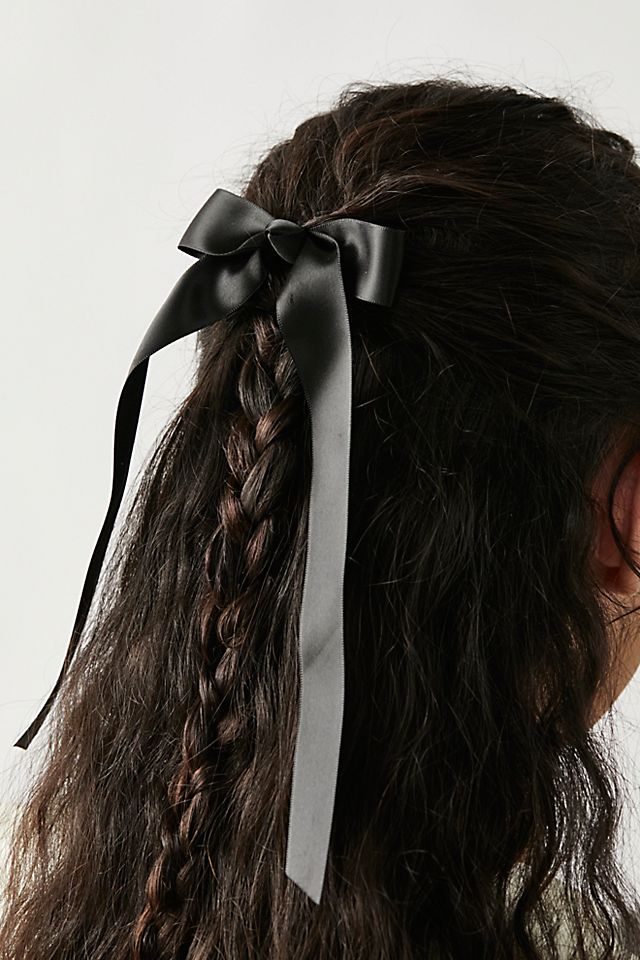
This affordable bow is an excellent alternative if you're not willing to shell out $500 for the Chanel hairbows featured in the couture collection.
Alexandre Vauthier, Look 9
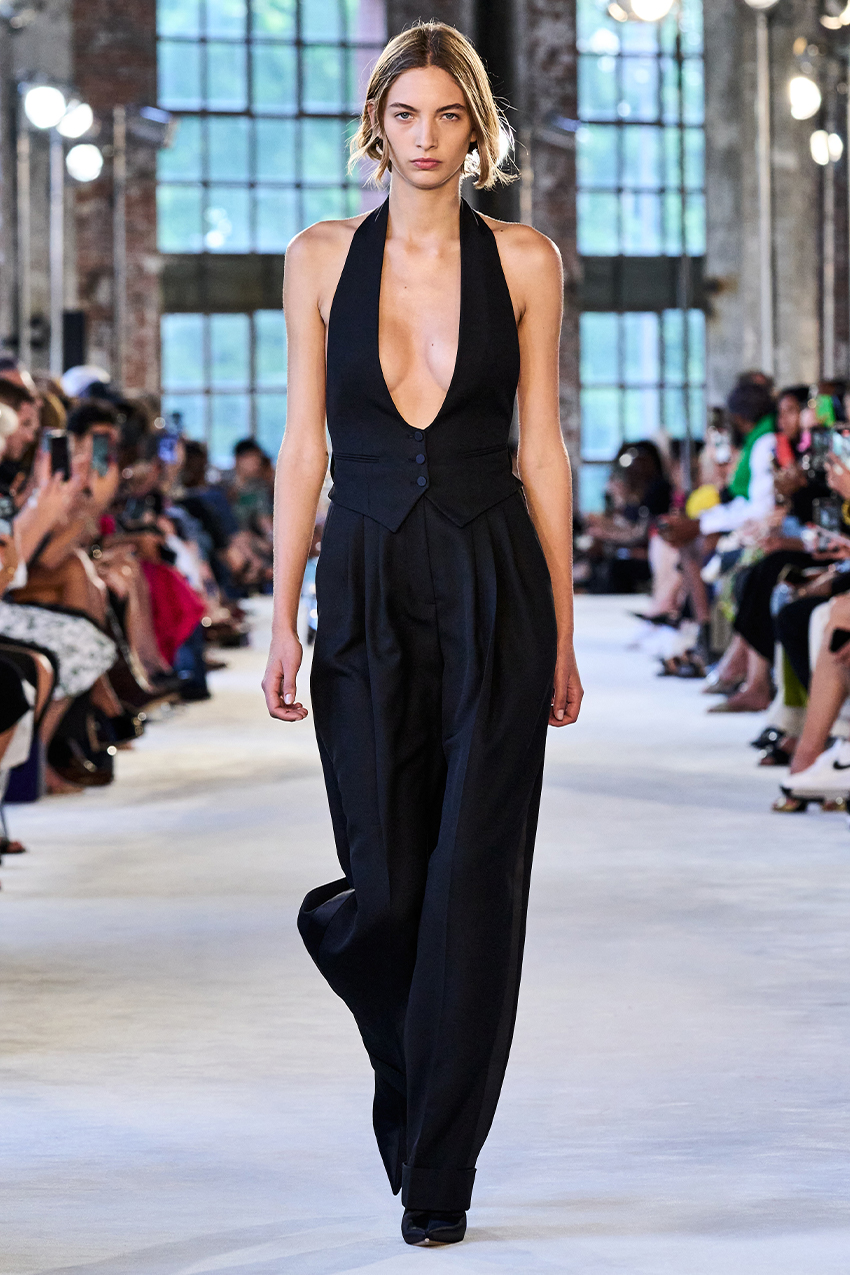
There comes a point with every couture house that the brand itself eclipses its founders and is cemented a part of fashion's lexicon—the next couturière to attain star status is Alexandre Vauthier. In some ways, this maîson already has as his pieces have been spotted on celebrities like Rihanna and Kendall Jenner. But considering that he founded his namesake label in 2008 after working under Thierry Mugler and Jean Paul Gaultier and was officially cemented as an independent couture brand in 2014 by the Chambre Syndicale de la Haute-Couture, he's still "fresh" compared to other ateliers.
But that's in no way a bad thing because that freshness can be seen in his approach to design—sharply tailored suits have provocative elements like deep V-necks and dramatic '80s shoulders, dresses champion draping, and asymmetrical hemlines alongside sequins and cobalt hues. The result is a collection that feels like it's taken couture into the future and cemented Vauthier as someone who will influence the industry for years to come.
Shop the key pieces:
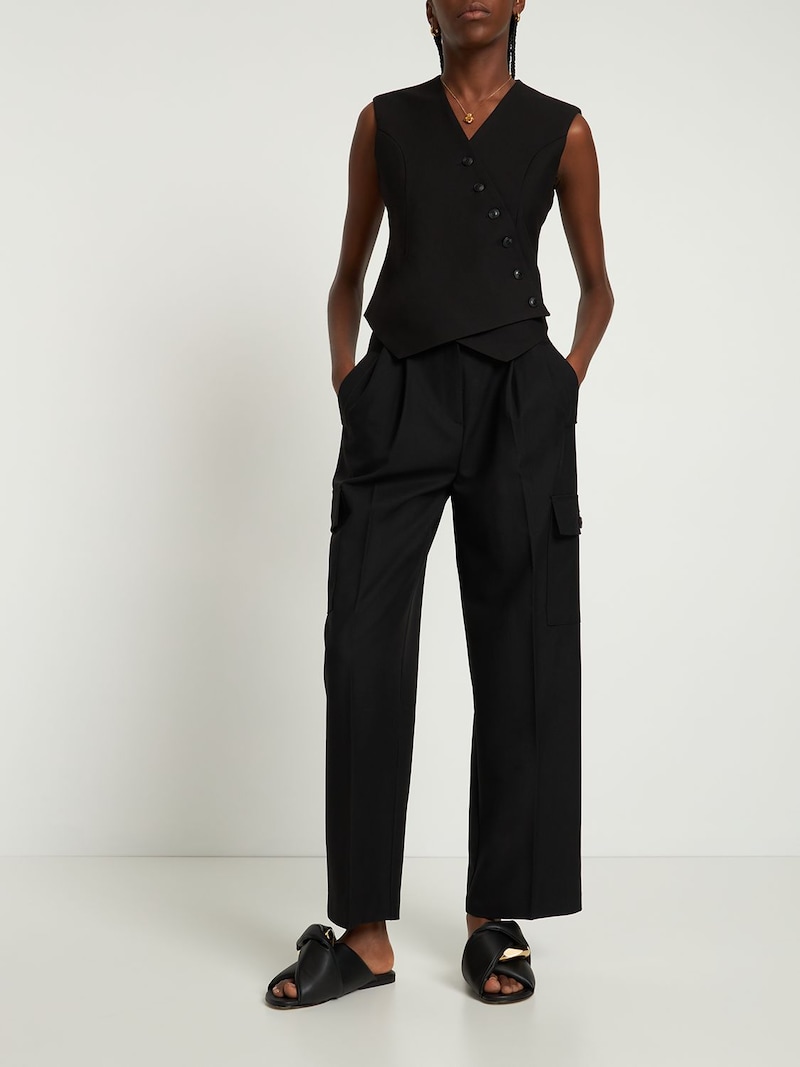
Don't be afraid to spend a little extra to find a waistcoat with unique tailoring—it will give off more of a couture look.
Antonio Grimaldi, Look 23
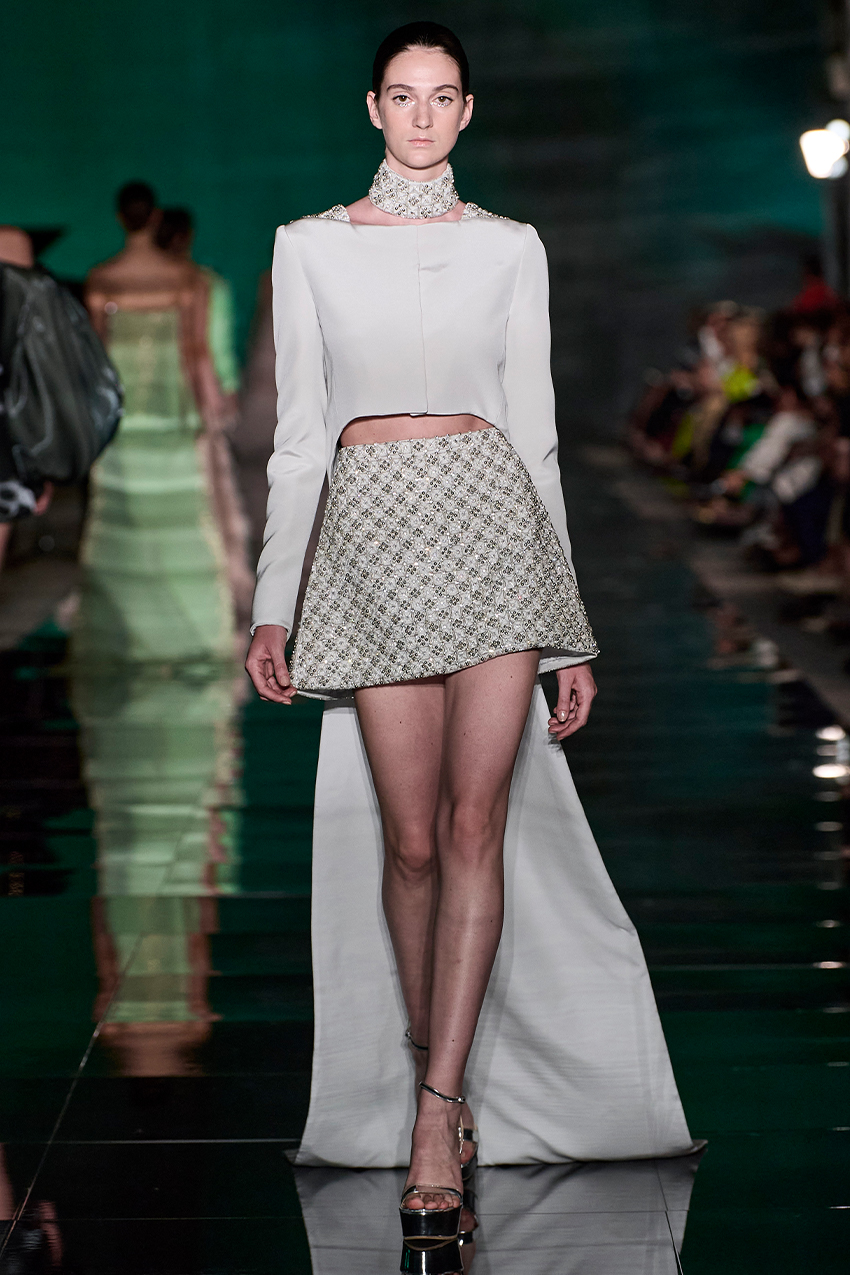
What makes couture special compared to everyday clothing comes back to the details, and that’s something that couturière Antonio Grimaldi clearly understands. He began designing in 1996 but decided to find his namesake label in 2010. While other couture houses may have been founded in the late nineteenth century, this designer is arguably bringing haute couture methods into this century. Grimaldi does that through his innate ability to balance modernity and antiquity—seen through sharp asymmetrical hemlines paired with overly feminine and often intricately-adorned pieces (like the look above). This attentiveness to detail translates to a body of work that pays homage to the long history of haute couture and allows us to inject dreaminess into our daily lives.
Shop the key pieces:
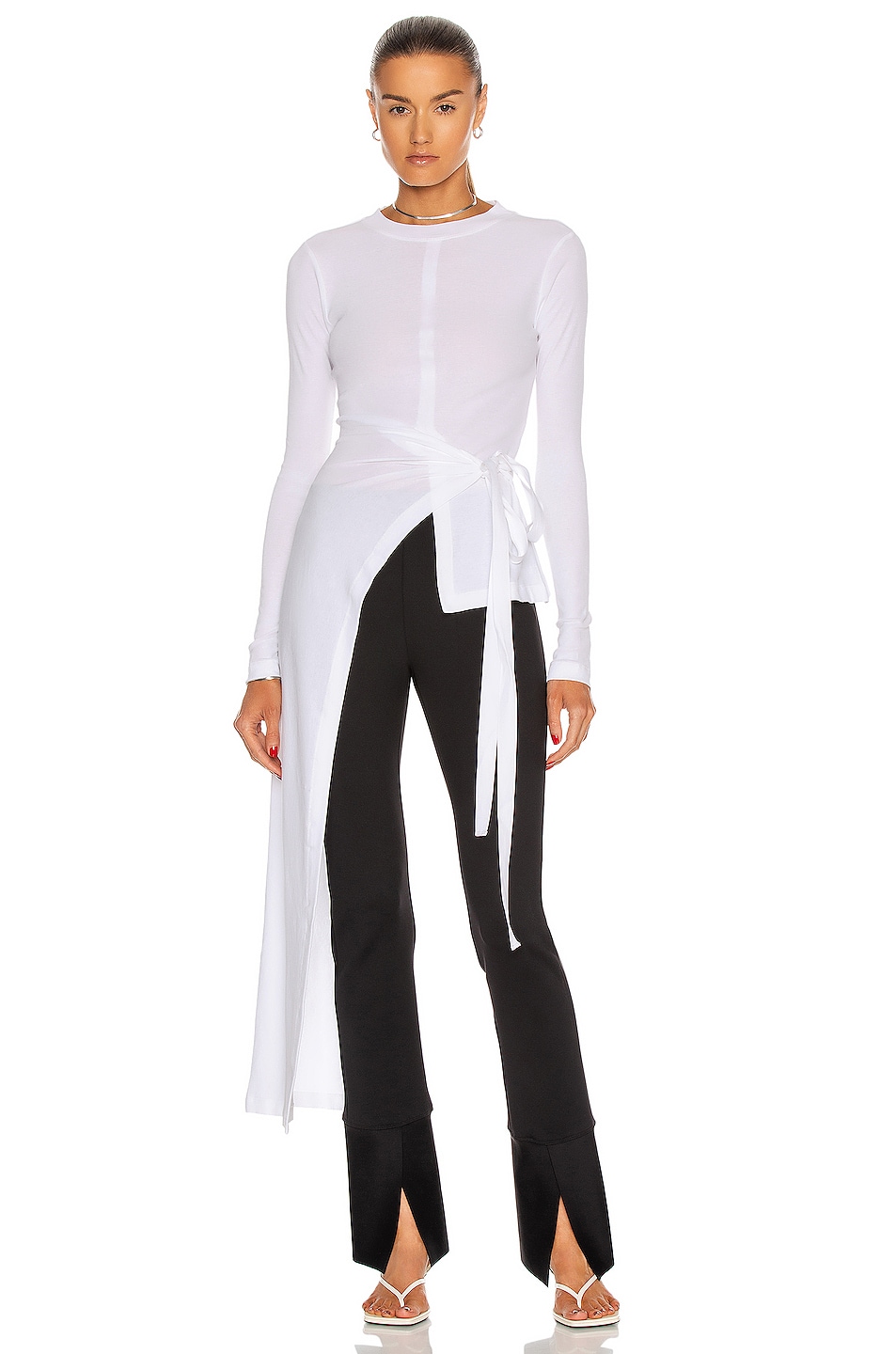
A T-shirt with a train? Who said everyday wardrobe staples couldn't be dramatic?
Viktor & Rolf, Look 31

Tailoring, and by extension, suiting, have always been a consequential part of haute couture—after all, stitching can single-handily change how a garment fits our form. So it is no surprise that we'd find suiting in couture collections, including Viktor & Rolf's F/W 22 collection. But in proper form to these couturiers' provocative perspective to design, these weren't your typical suits. The show's first half featured over-the-top structured collars and constricted hemlines, while the second half still featured oversize collars but were styled with big button-downs and relaxed trousers.
And while you may be thinking, "Okay, but we knew relaxed suiting was happening," what makes this collection noteworthy is how Viktor Horsting and Rolf Snoeren can continuously use couture practices to challenge the way we think. Whether that's repositioning how we view the confines of masculinity through suiting or what role couture at large plays in culture, Viktor & Rolf, time and time again, connects the threds for us all.
Shop the key pieces:
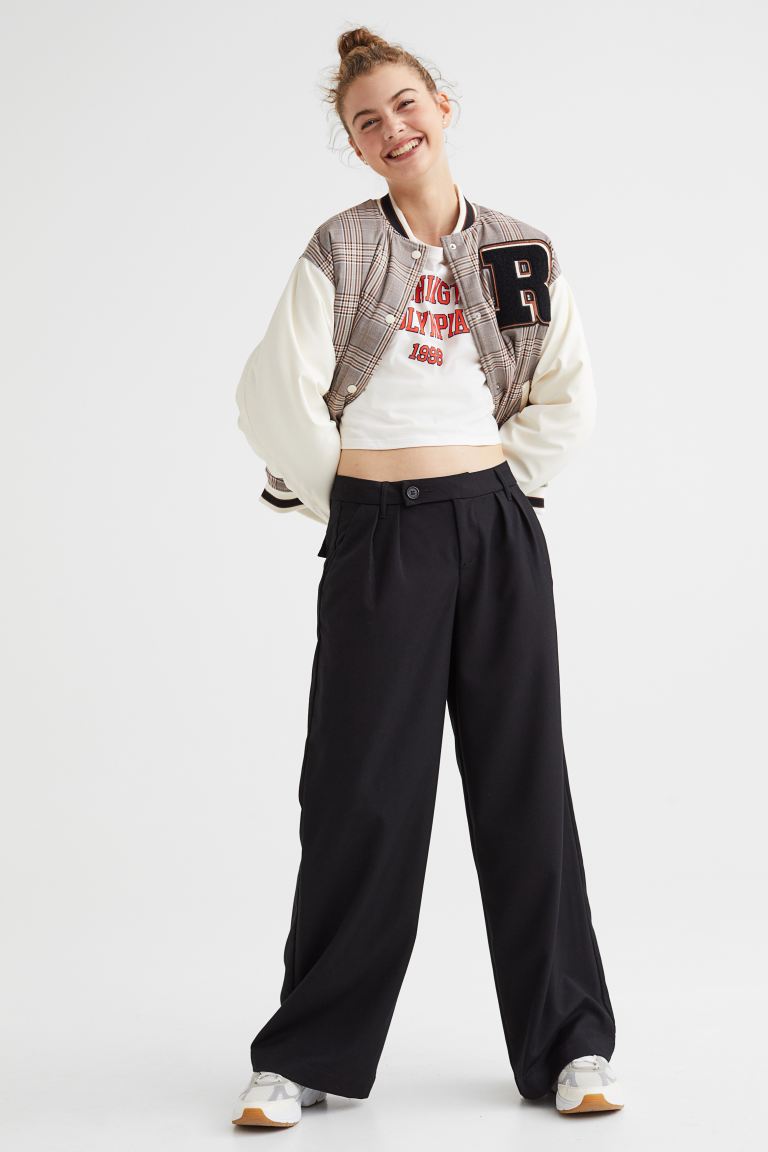
You'll want to find a more low-slung trousers to give off the Viktor & Rolf look.
Georges Hobeika, Look 32
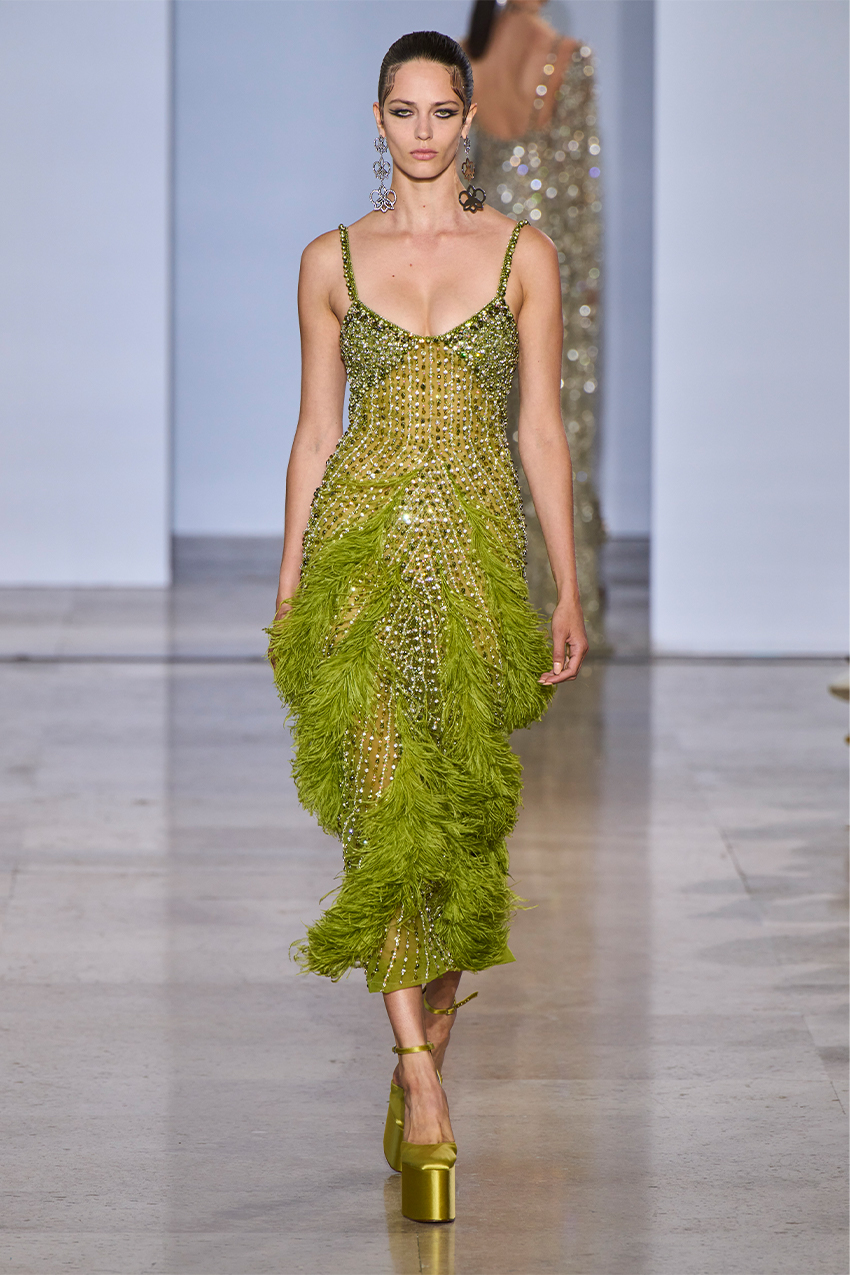
While couture is at its core about creating without limits, to say that the industry has always been forward-thinking would be far-fetched. But that doesn’t mean a new wave of couturiers isn’t changing that—in fact, Georges Hobeika is doing just that. The Lebanese designer founded his namesake couture and ready-to-wear label in 1995 and made history as the first Arab designer, along with his son and co-creative director, Jad, to stage a runway show at Paris couture week.
But that’s not the only forward movement you can account for this designer—its work has constantly featured innovative design techniques (including airbrushed pieces in their recent collection). It’s not just how they design or who they are that makes them noteworthy—it’s what they’re creating. You can see full-length cerulean hand-painted gowns besides body-con sequin and feather-adorned dresses and understand that the best couture can not only push the industry forward but make you excited at the prospects of dressing up again.
Shop the key pieces:
Next: Anne Hathaway's Micro Miniskirt and 6-Inch Platforms Just Won Couture Week

Jasmine Fox-Suliaman is a freelance writer and editor living in New York City. What began as a pastime (blogging on Tumblr) transformed into a lifelong passion for unveiling the connection between fashion and culture on the internet and in real life. Over the last decade, she's melded her extensive edit and social background to various on-staff positions at Who What Wear, MyDomaine, and Byrdie. More recently, she’s become a freelance contributor to other publications including Vogue, Editorialist, and The Cut. Off the clock, you can find her clutching her cell phone as she's constantly scrolling through TikTok and The RealReal, in search of the next cool thing.
-
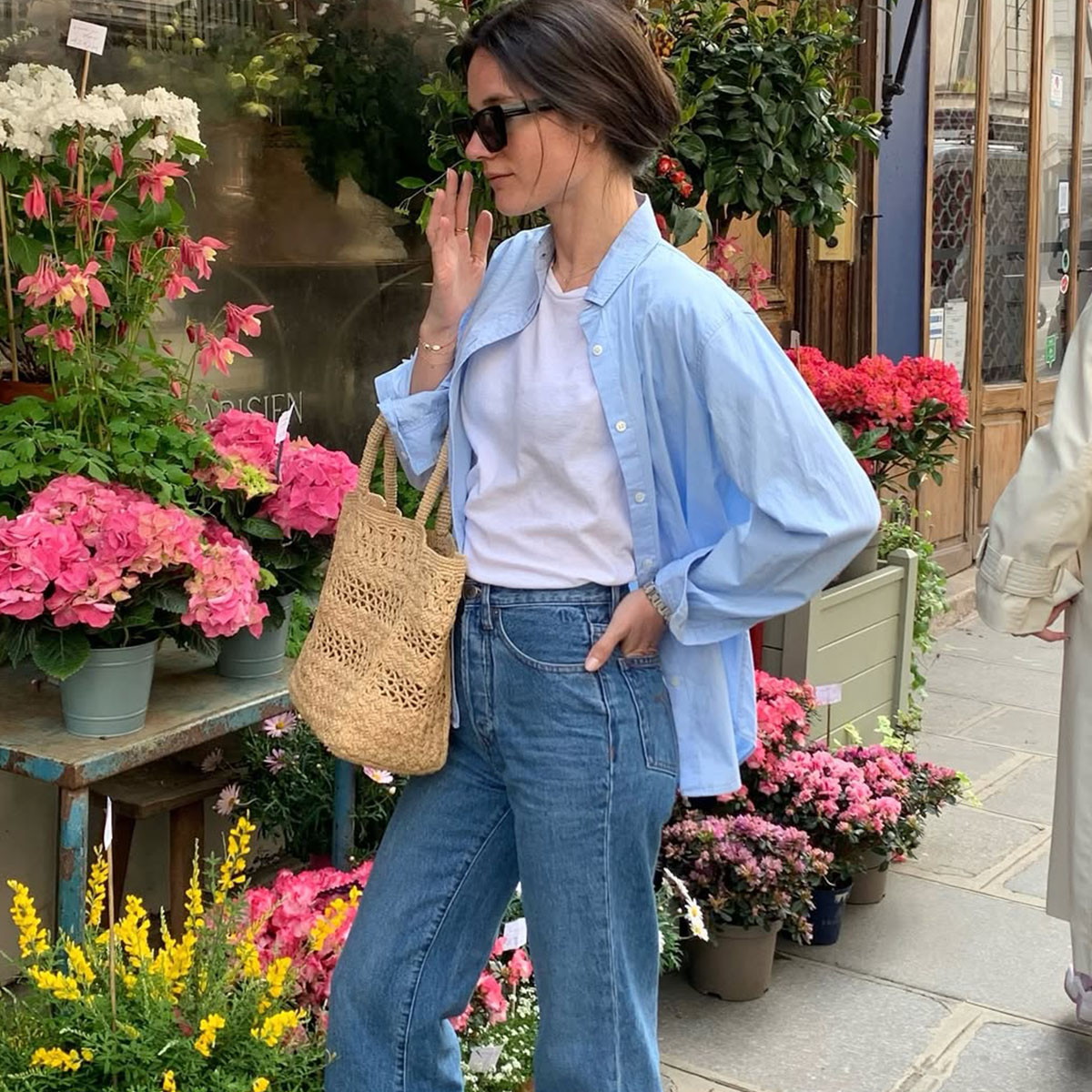 10 Classic Spring Items Parisians Love to Wear With Jeans
10 Classic Spring Items Parisians Love to Wear With JeansEffortless, chic, and versatile.
By Judith Jones
-
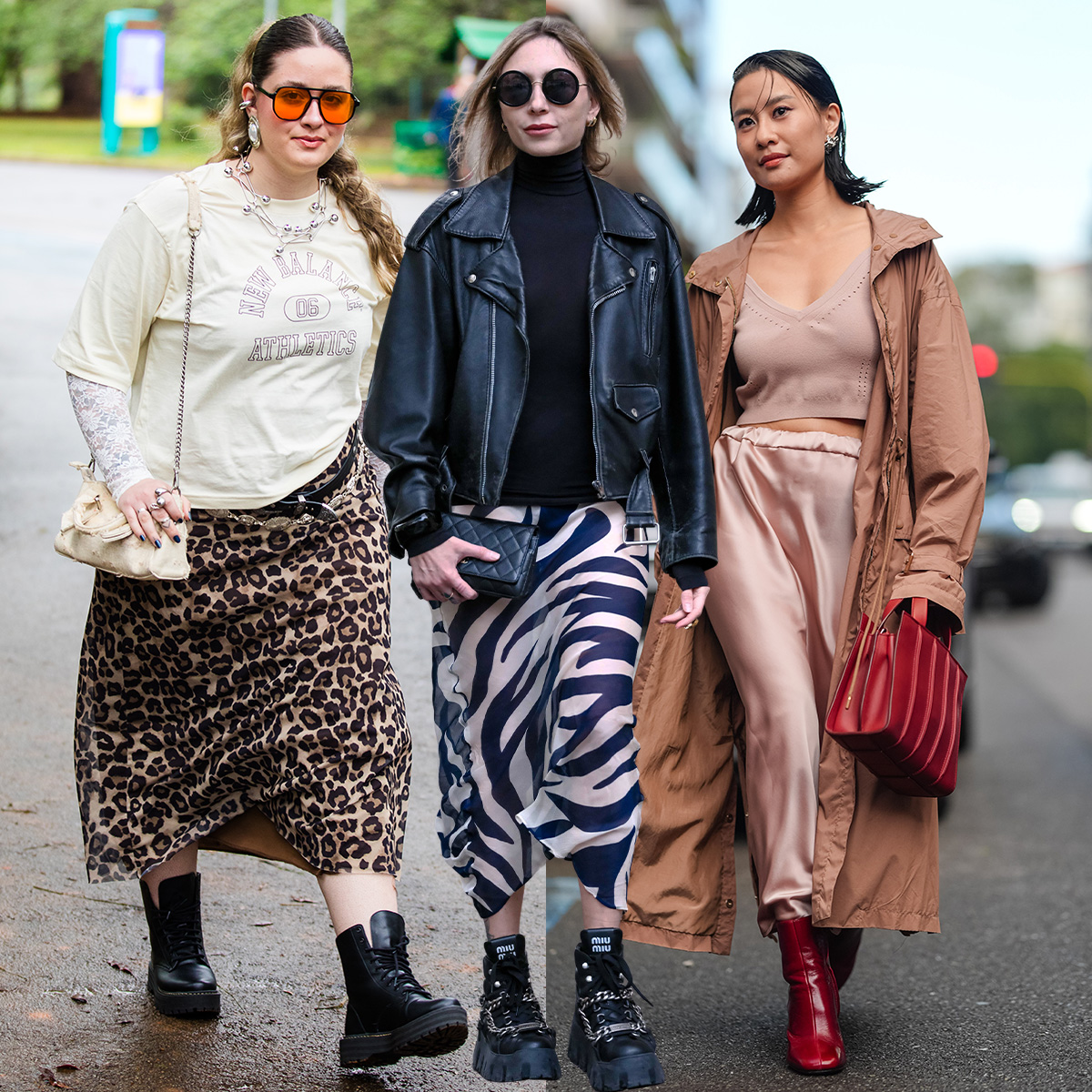 The Effortless Skirt-and-Boot Combo I'm Copying From People in Paris and Milan
The Effortless Skirt-and-Boot Combo I'm Copying From People in Paris and MilanIt's perfect for spring 'fits.
By Ana Escalante
-
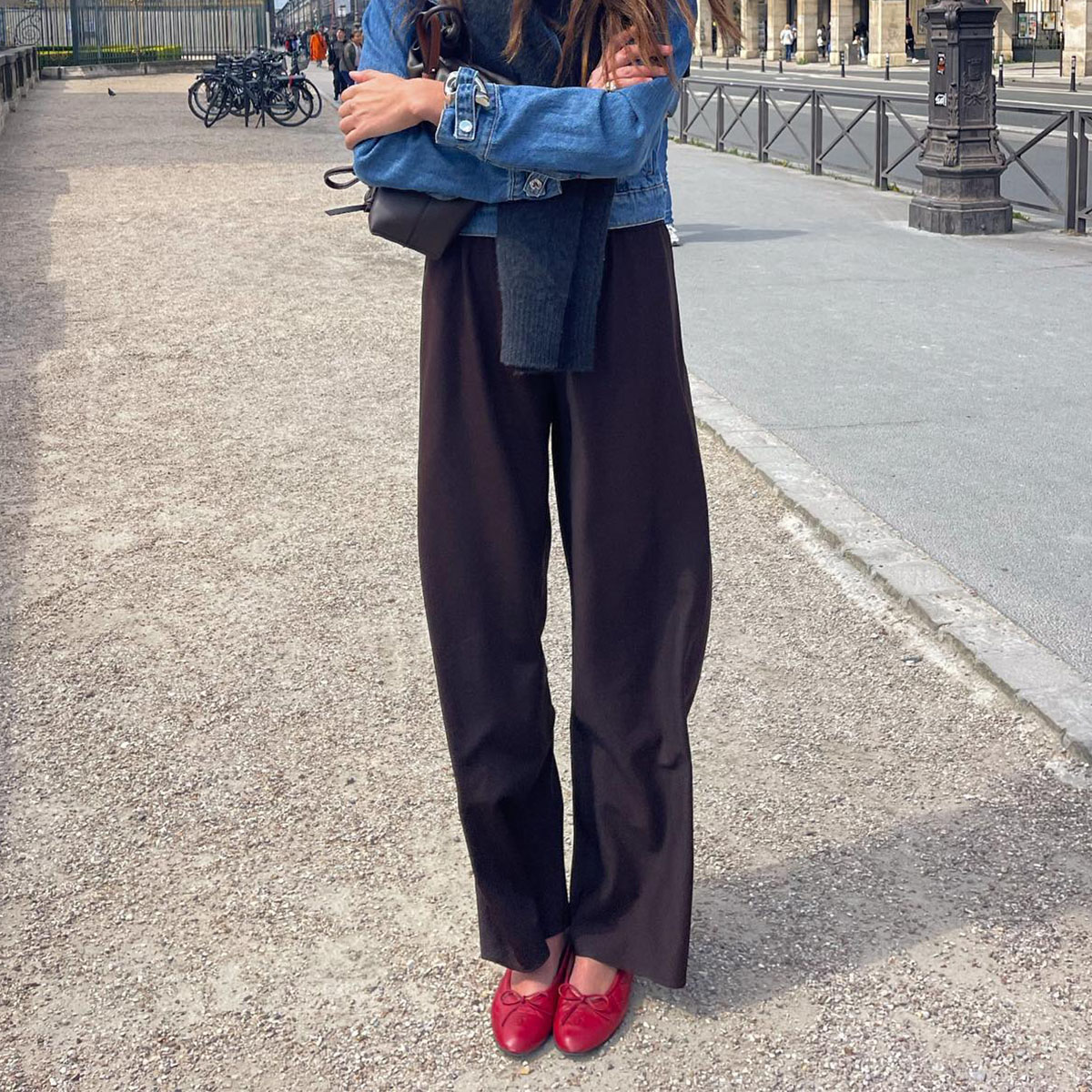 9 Classic Shoe Trends French Women Are Wearing This Spring
9 Classic Shoe Trends French Women Are Wearing This SpringVersatile and chic.
By Judith Jones
-
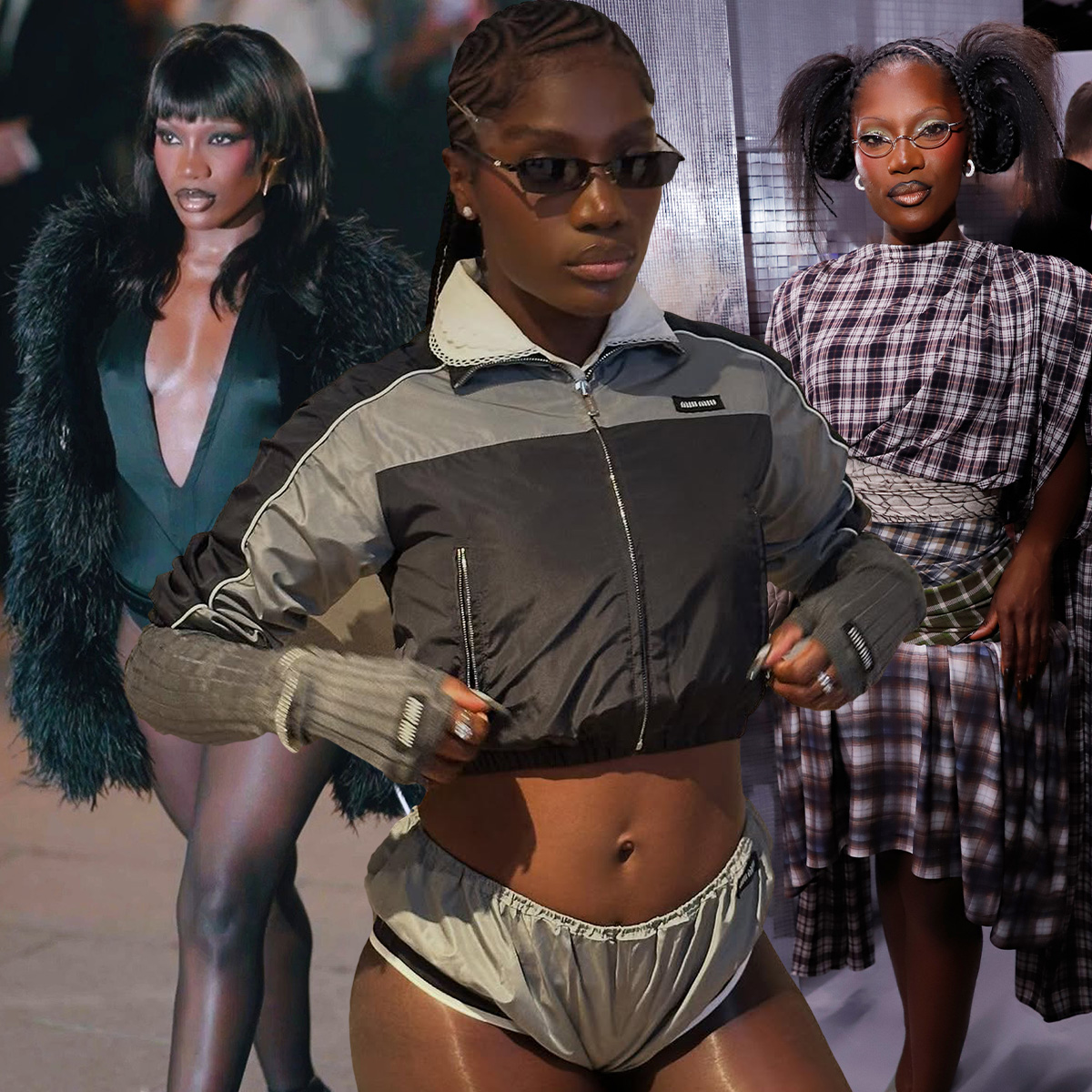 Doechii's Rapid Ascent to 2025 Style-Icon Status
Doechii's Rapid Ascent to 2025 Style-Icon StatusThe Grammy-winning artist is at the top of her fashion game.
By Anna LaPlaca
-
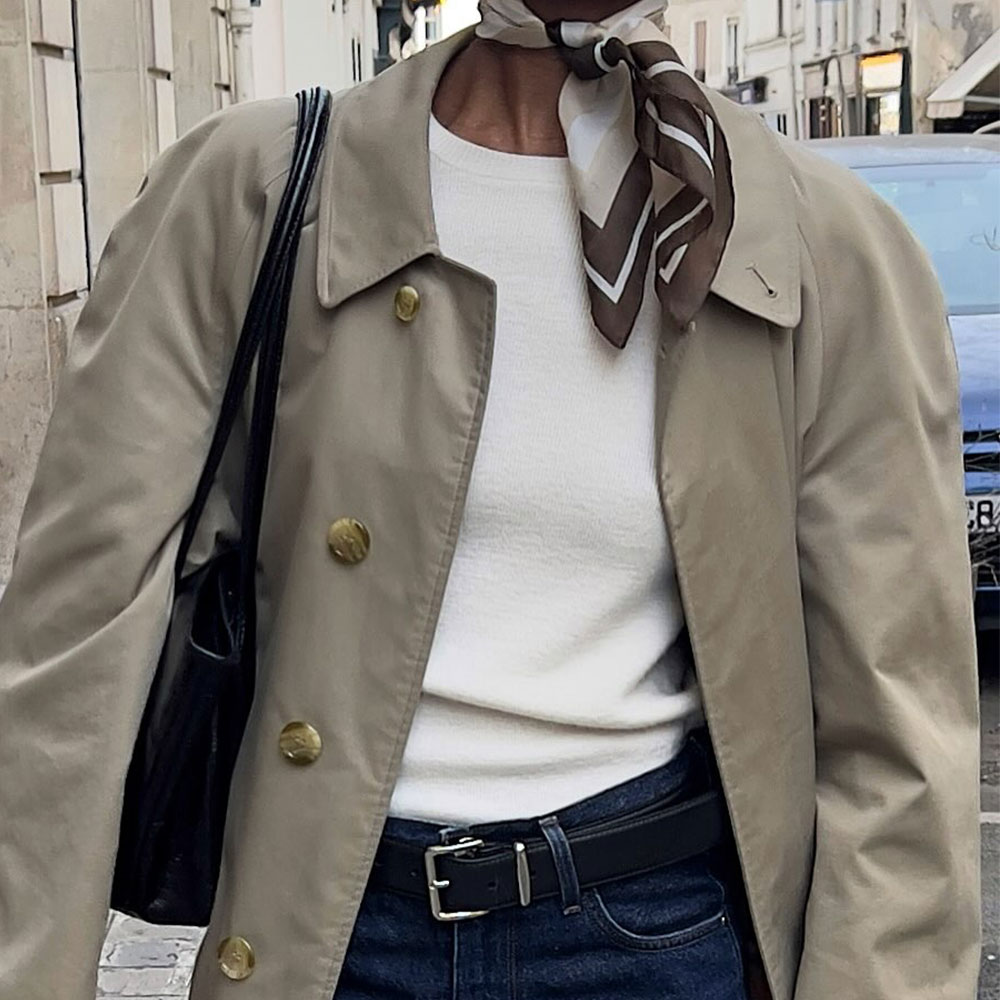 Everyone I Know Loves Parisian Style—These 5 Outfit Ideas Are Trend-Forward Yet Still Feel Classic
Everyone I Know Loves Parisian Style—These 5 Outfit Ideas Are Trend-Forward Yet Still Feel ClassicEffortless vibes.
By Bobby Schuessler
-
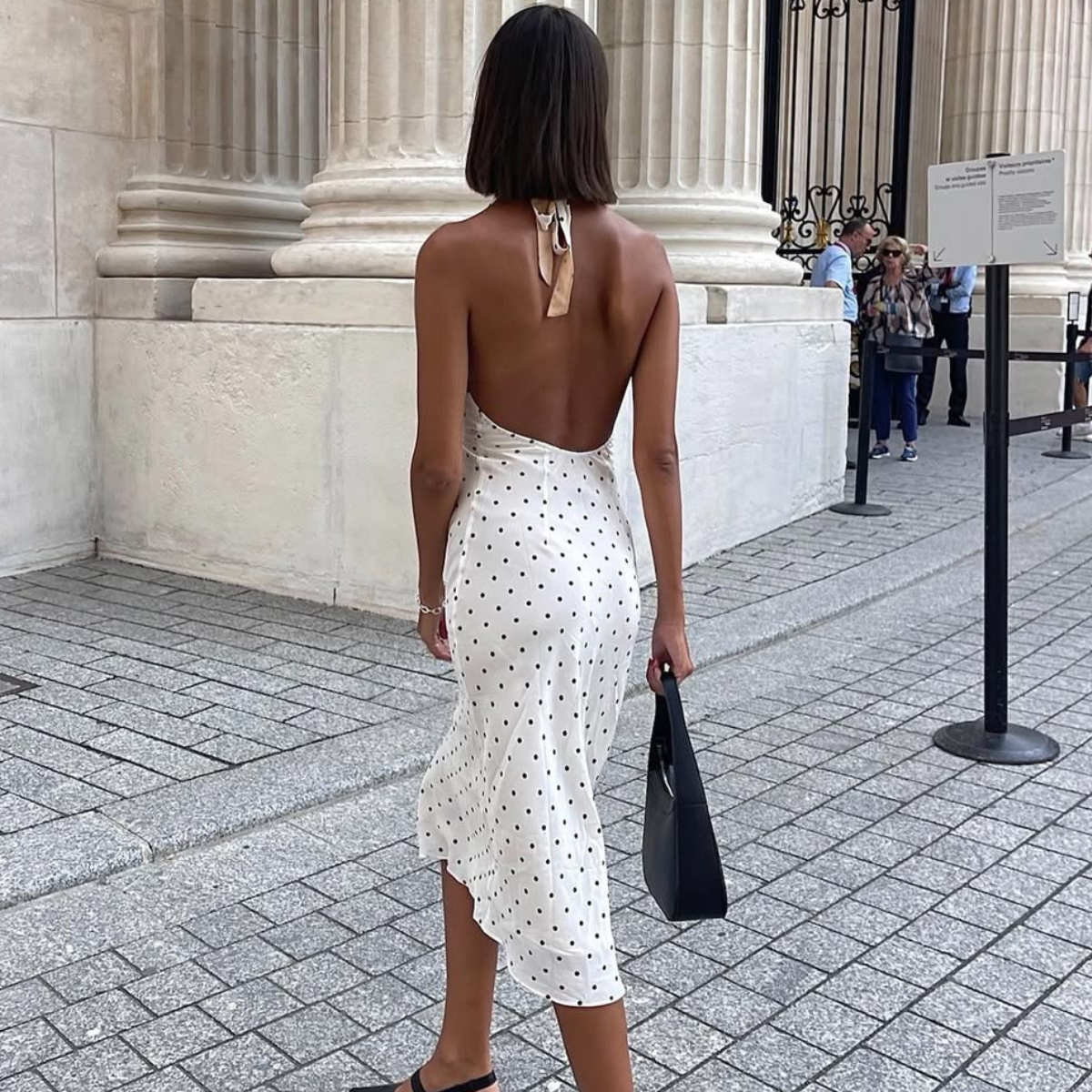 Everyone in Paris Is Wearing This Dress Trend Instead of Slips and Drop Waists Now
Everyone in Paris Is Wearing This Dress Trend Instead of Slips and Drop Waists NowIt's a quintessentially French style.
By Michelle Scanga
-
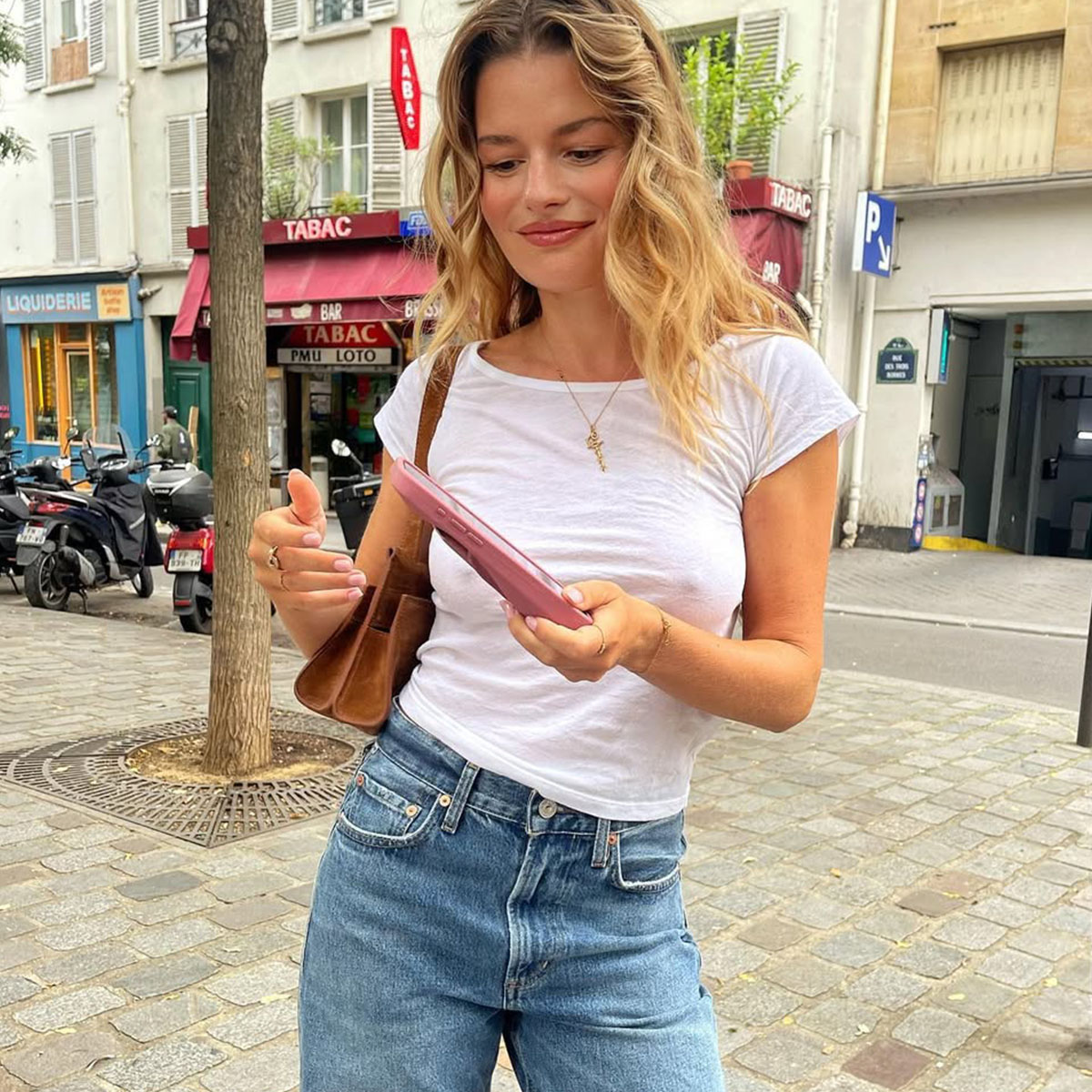 If a French Girl Shopped the Amazon Big Spring Sale, These Are the 25 Items She'd Add to Her Cart Immediately
If a French Girl Shopped the Amazon Big Spring Sale, These Are the 25 Items She'd Add to Her Cart ImmediatelyFrom straight-leg jeans to classic trench coats.
By Judith Jones
-
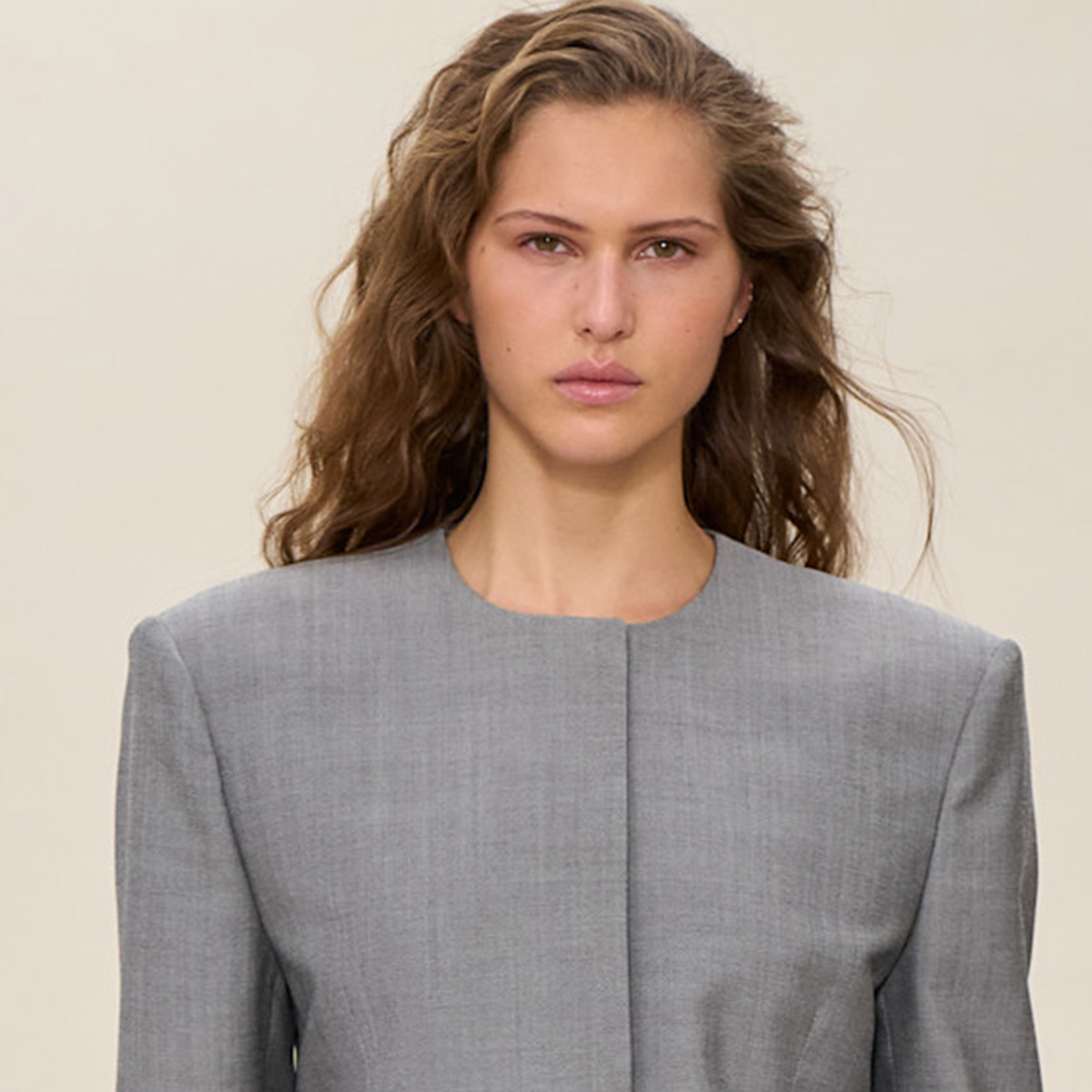 6 Fall 2025 Runway Trends I Already Found at Zara, H&M, and Mango
6 Fall 2025 Runway Trends I Already Found at Zara, H&M, and MangoAffordability's never looked so good.
By Eliza Huber
